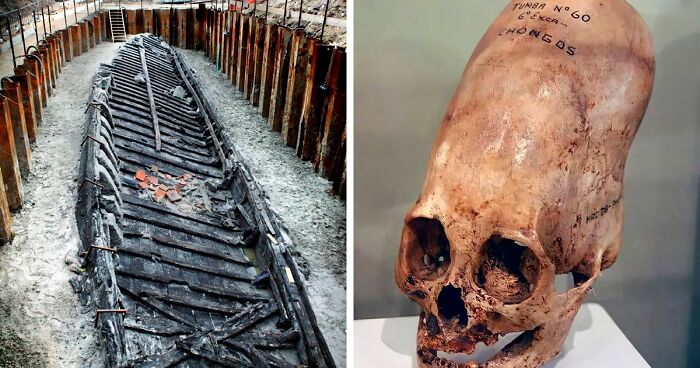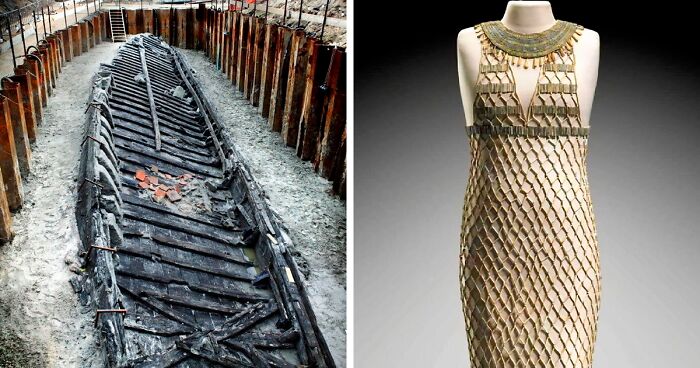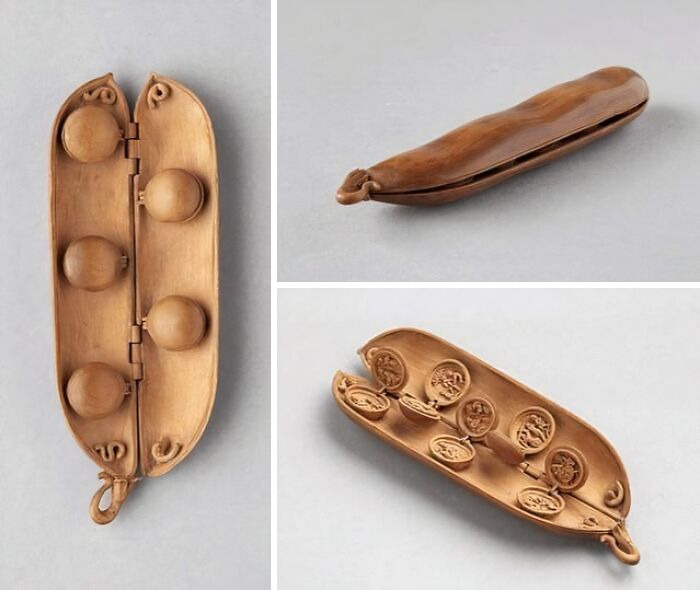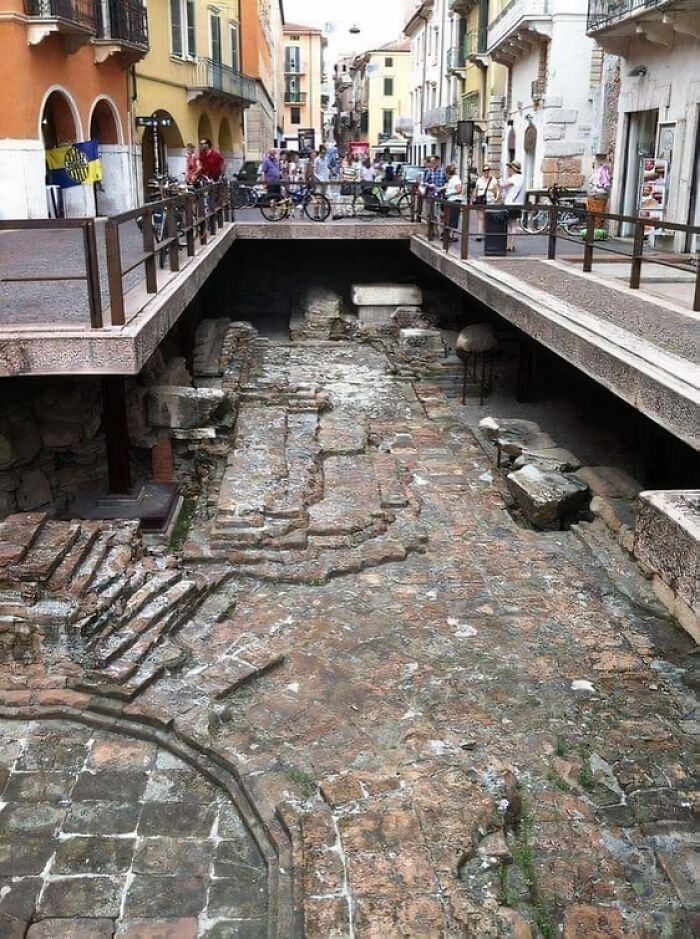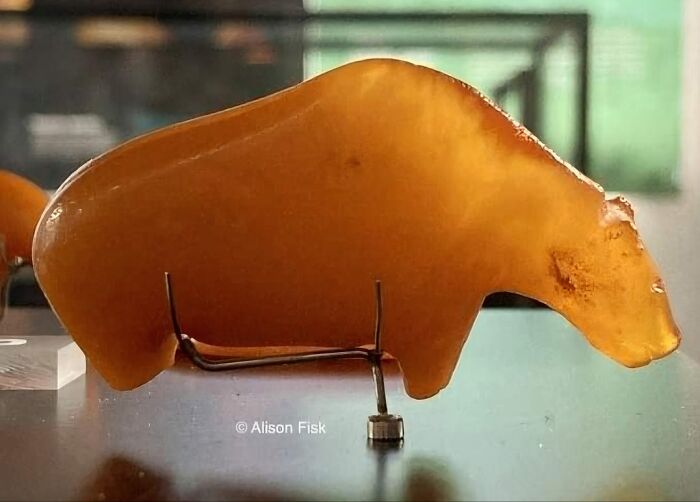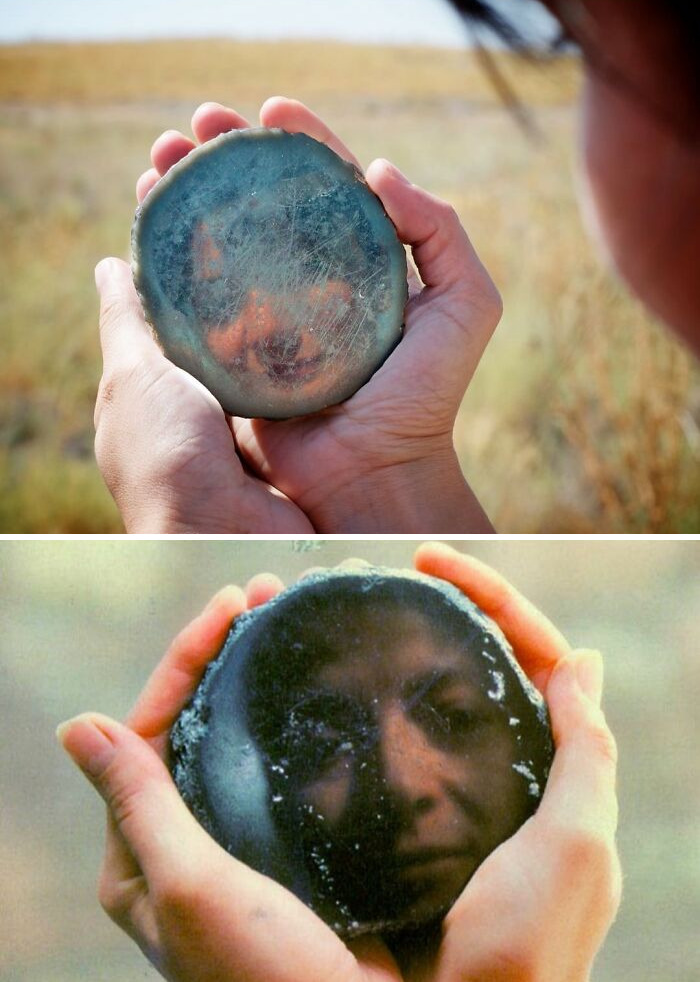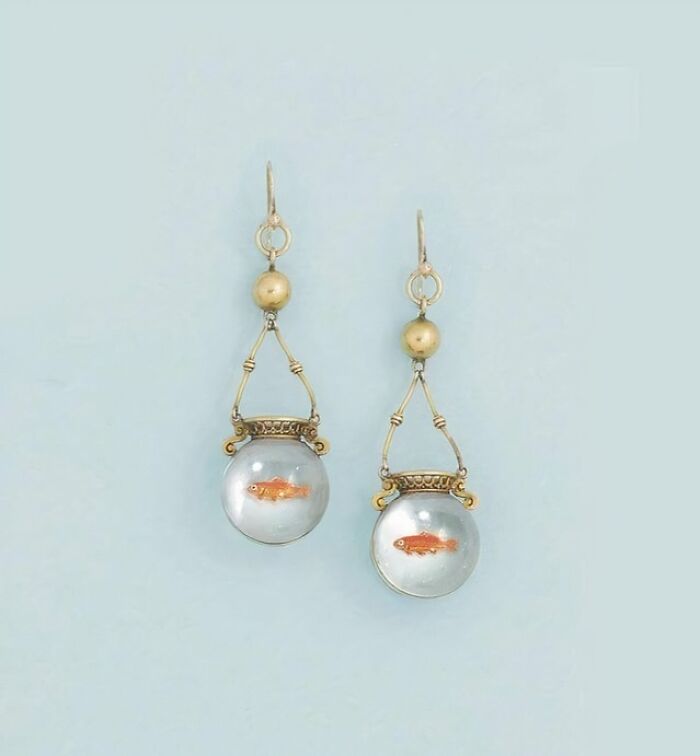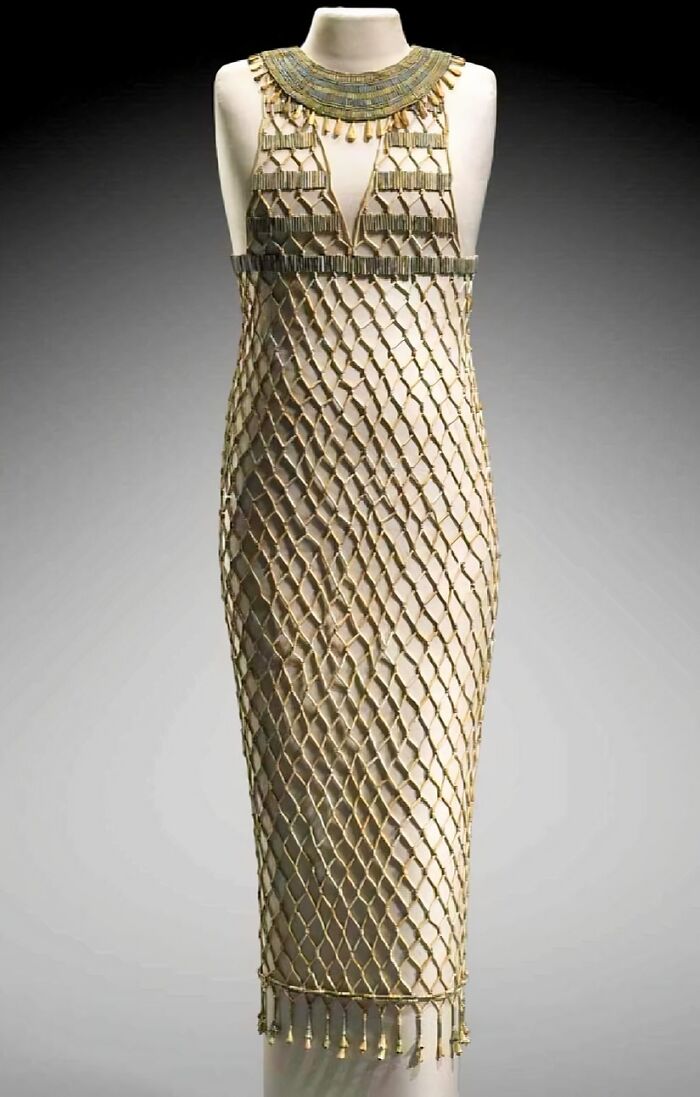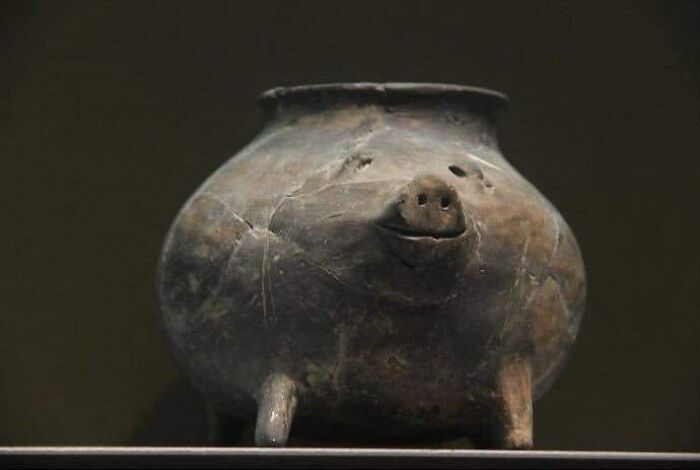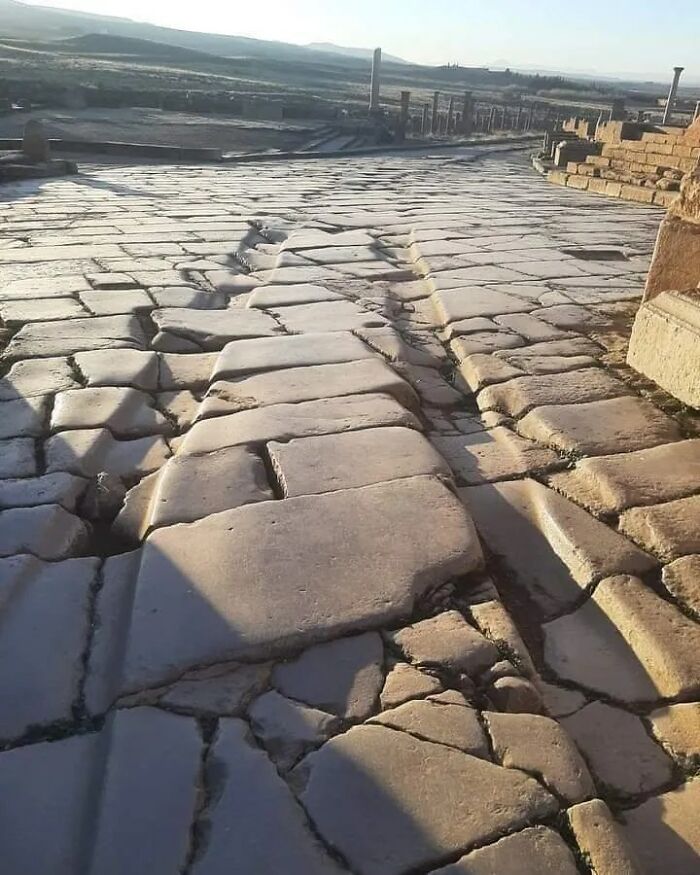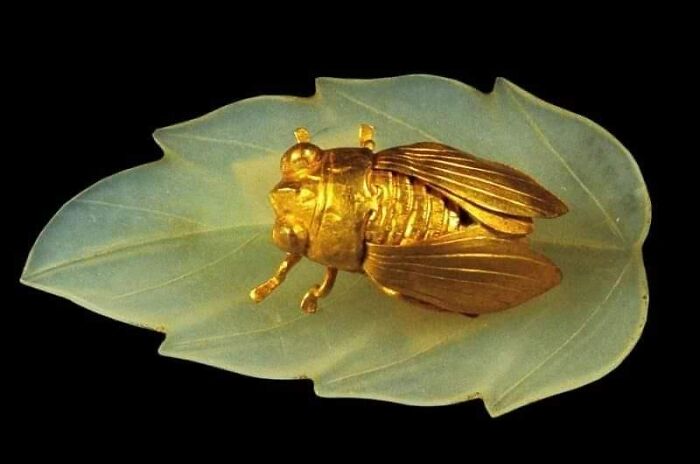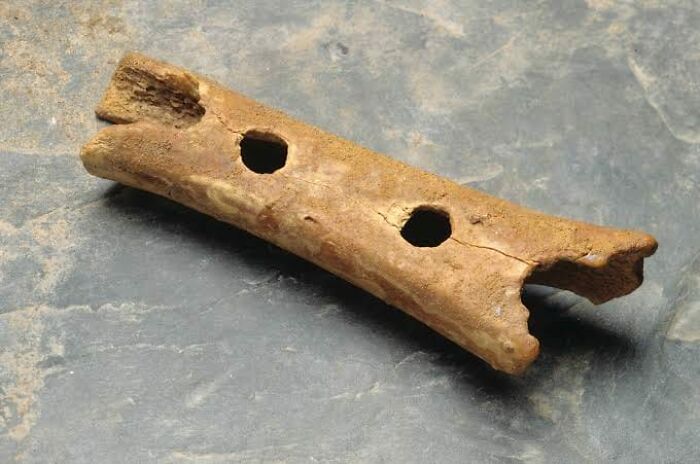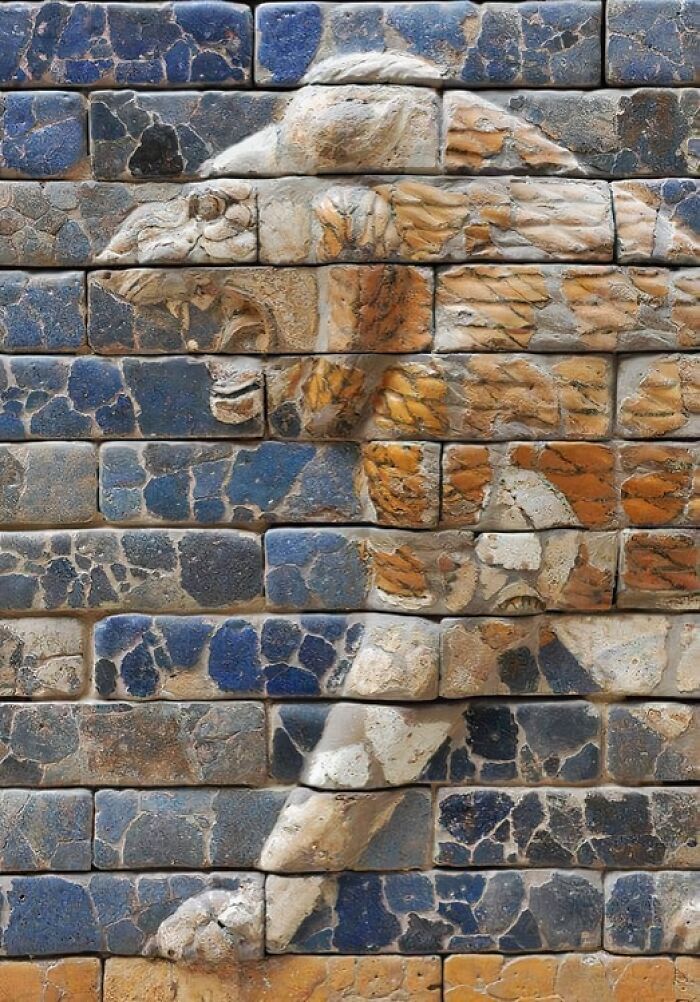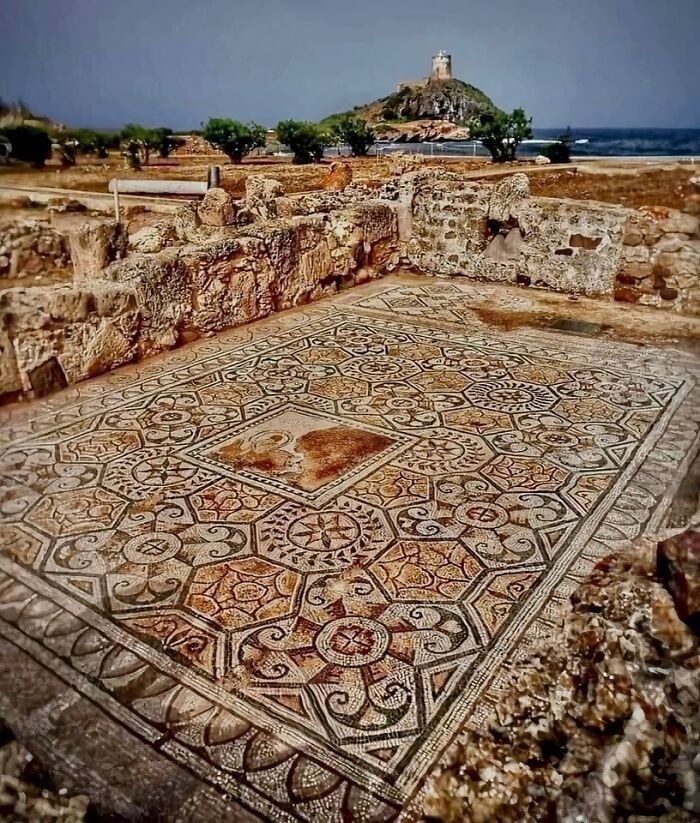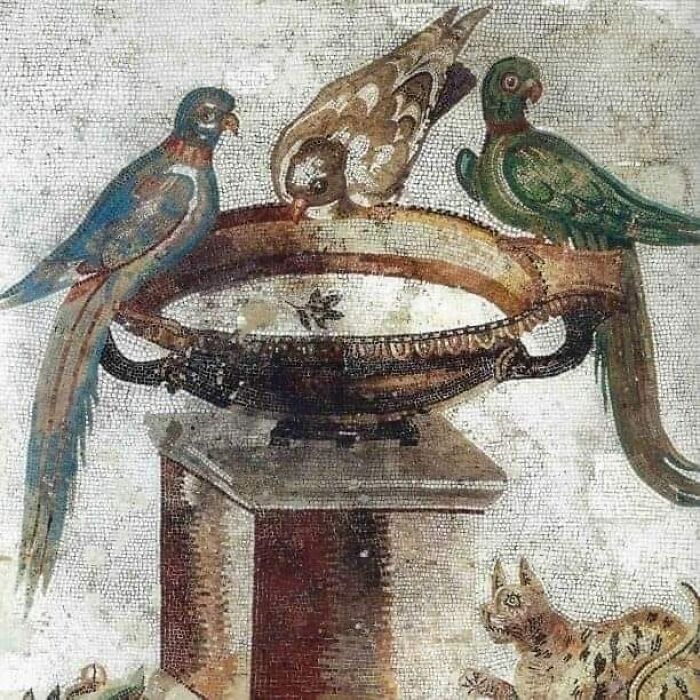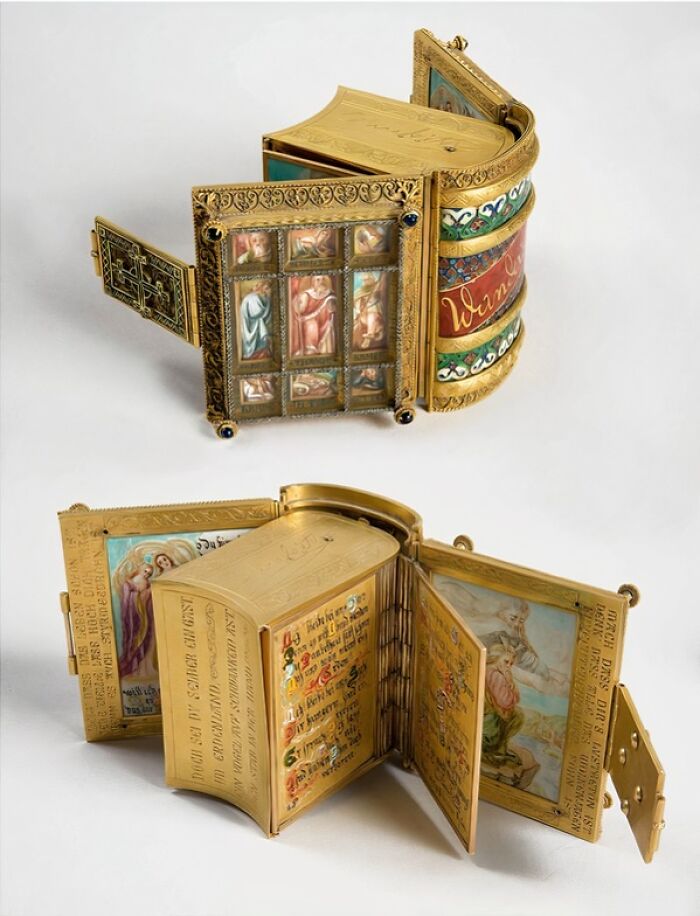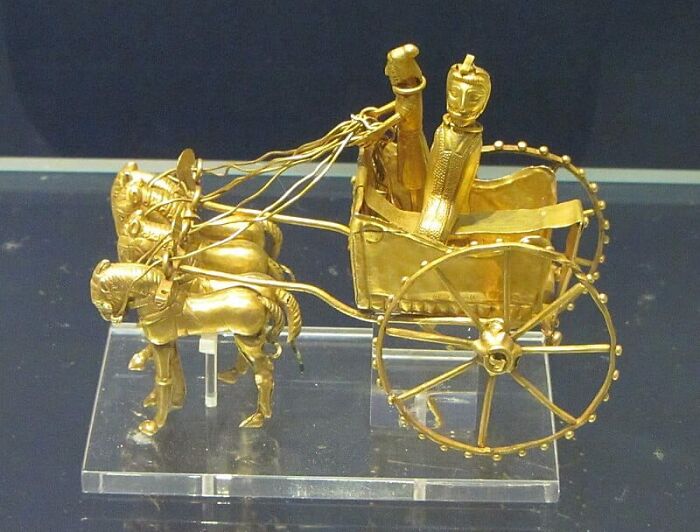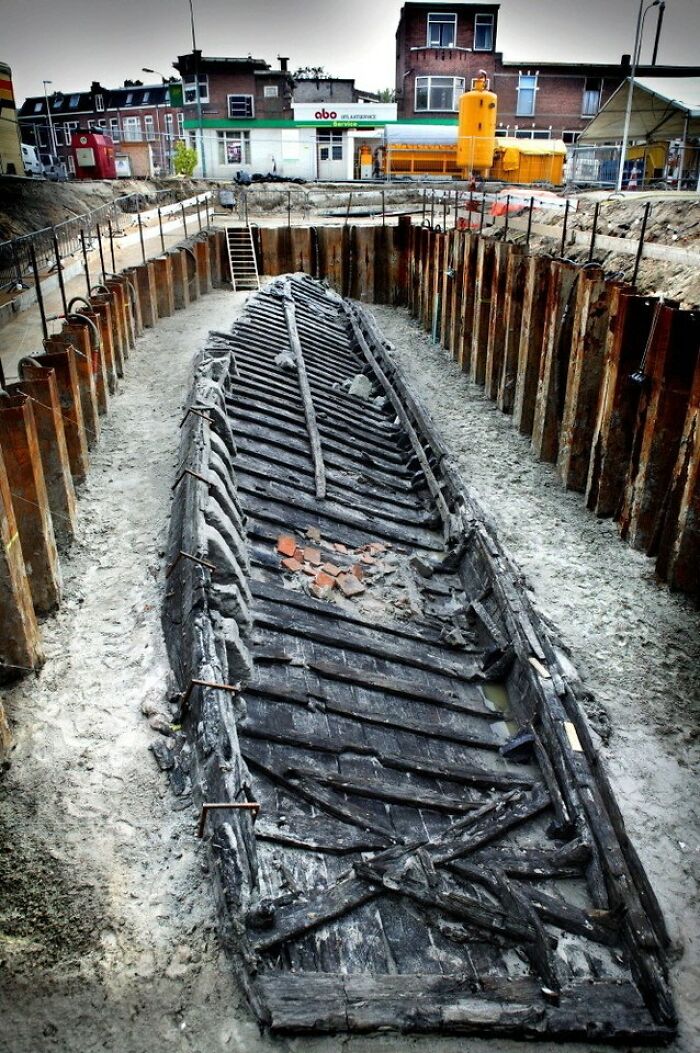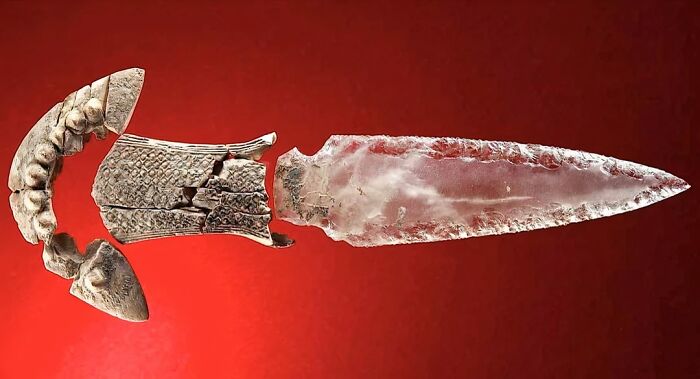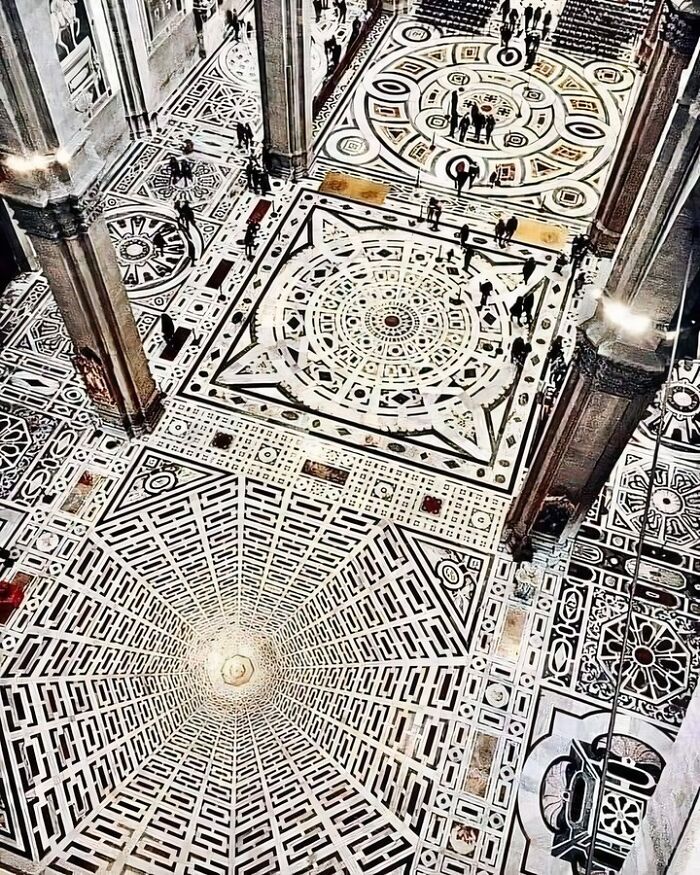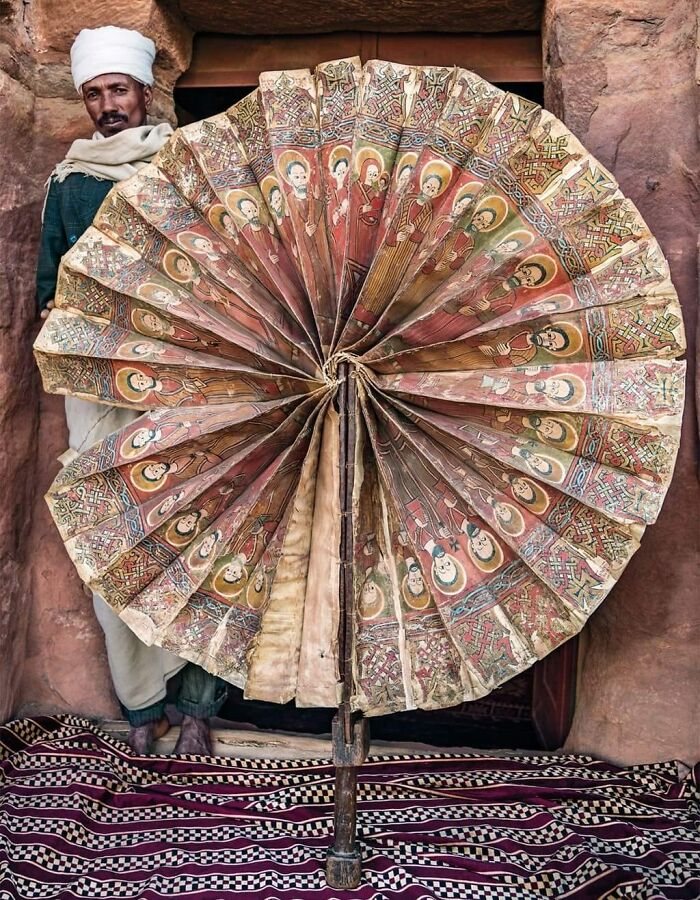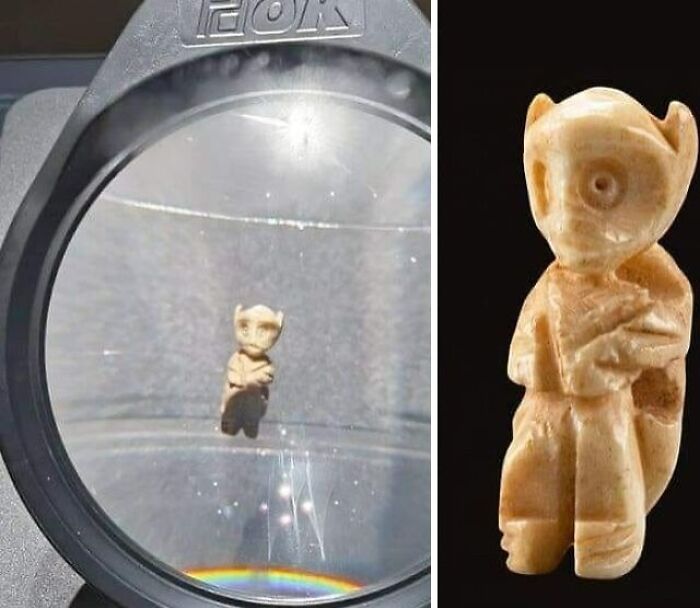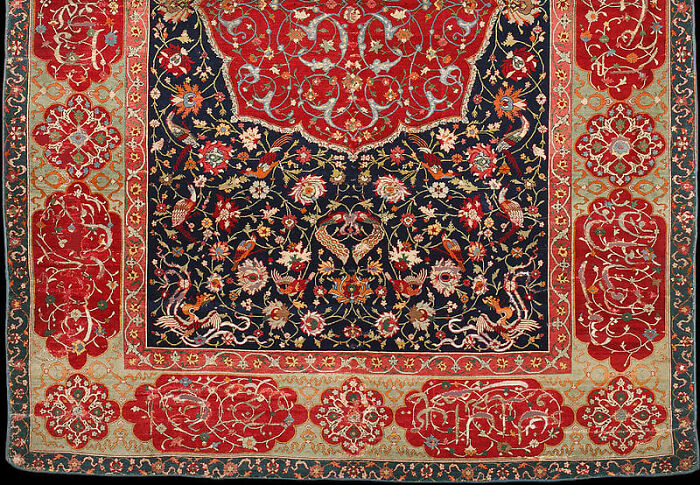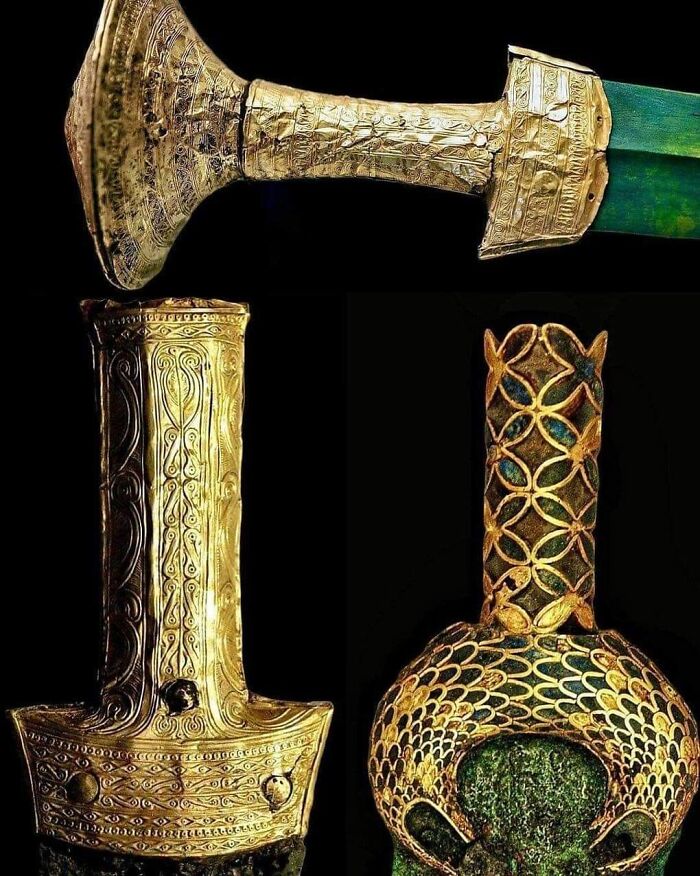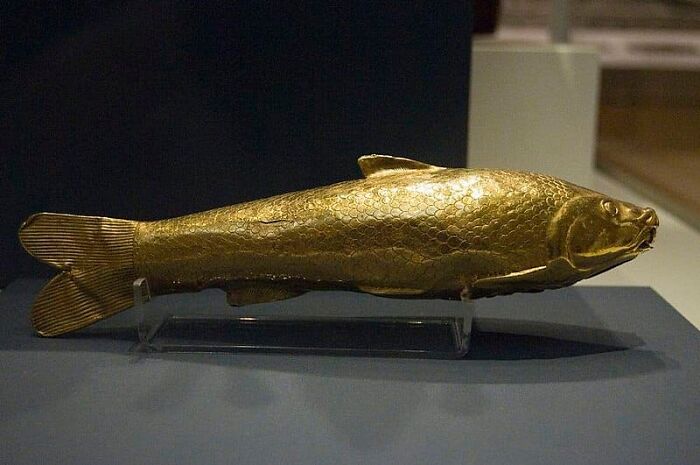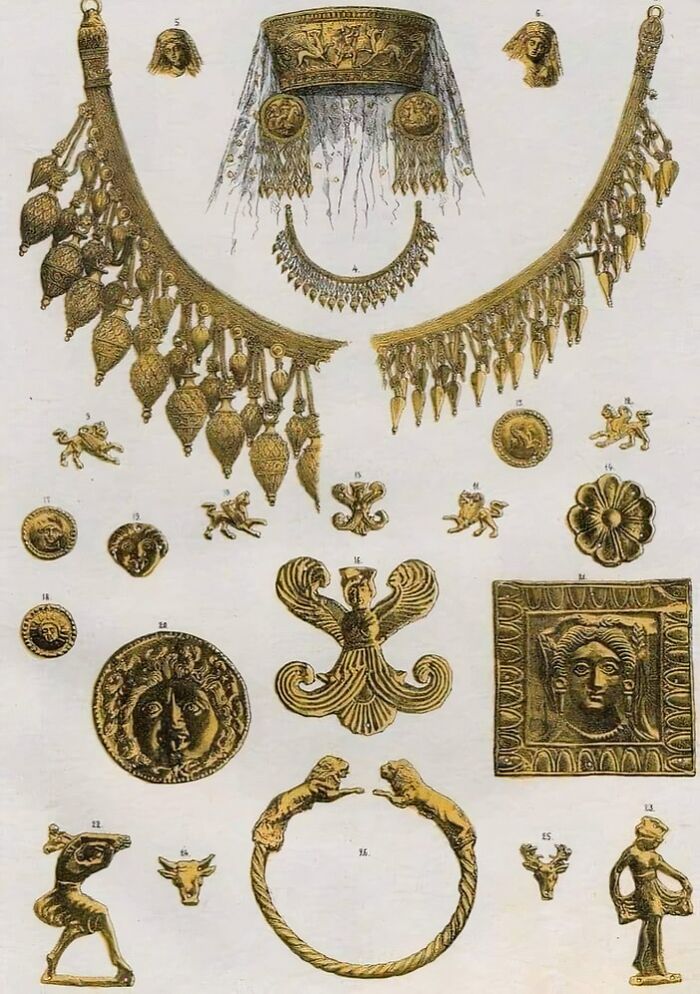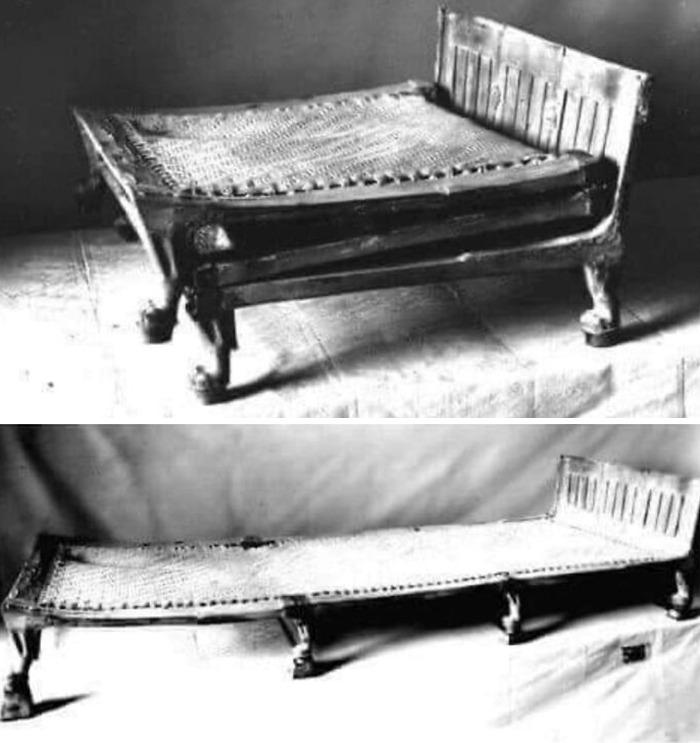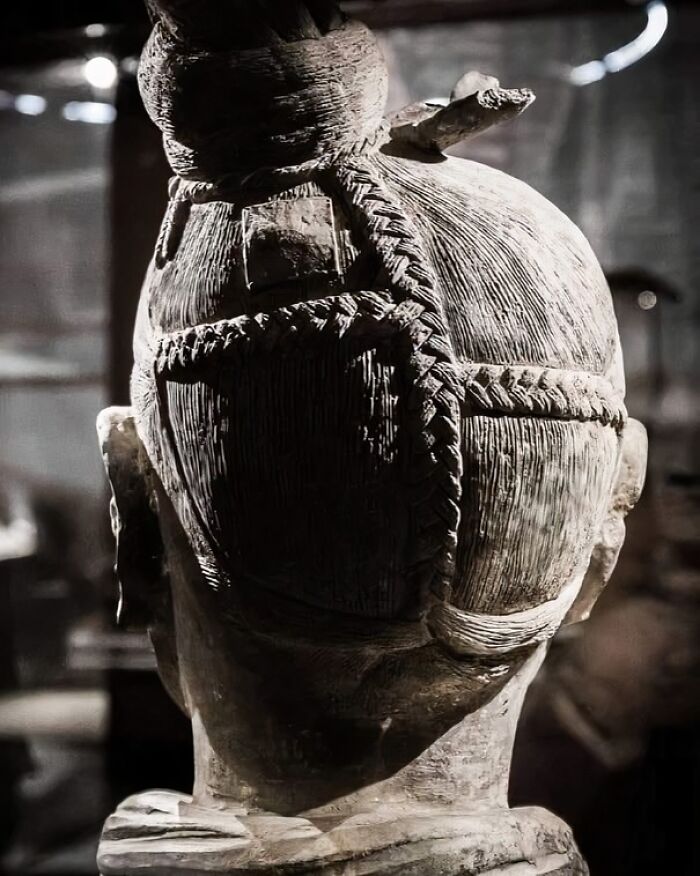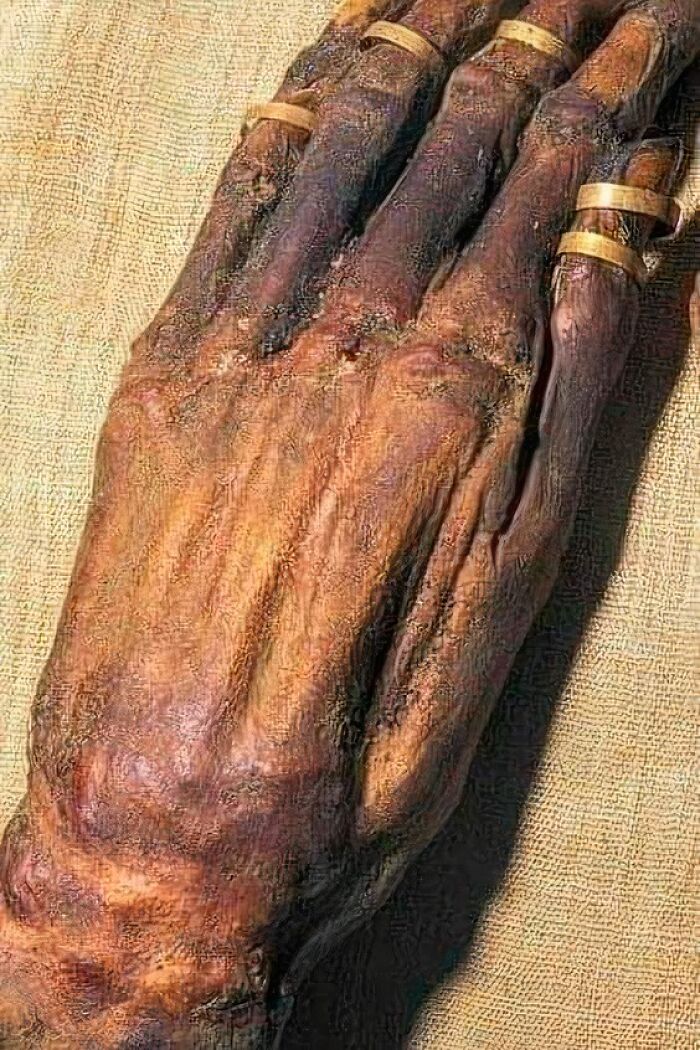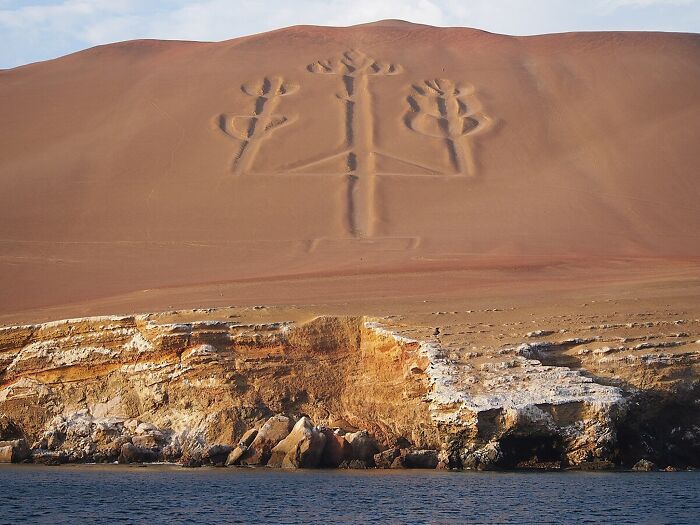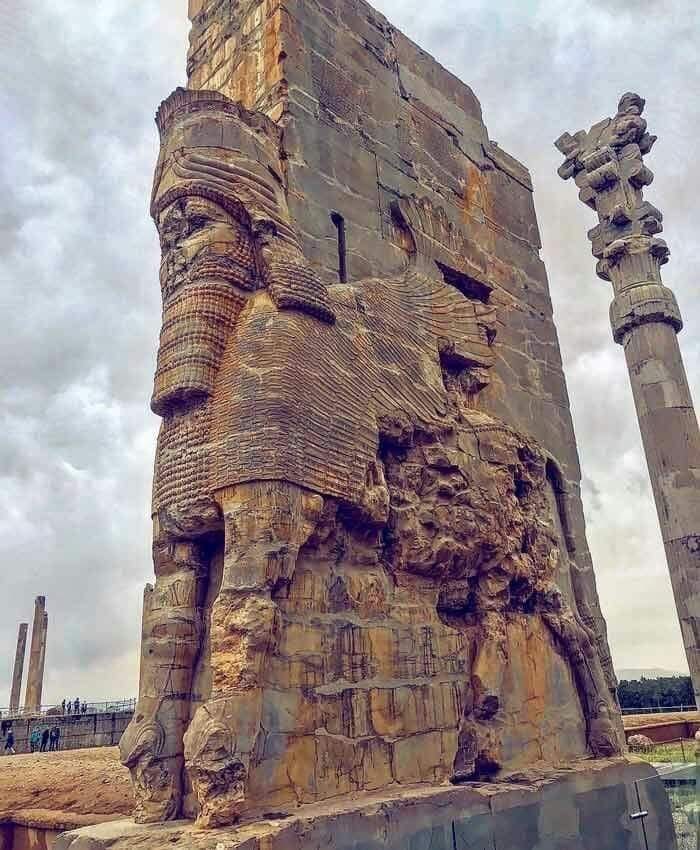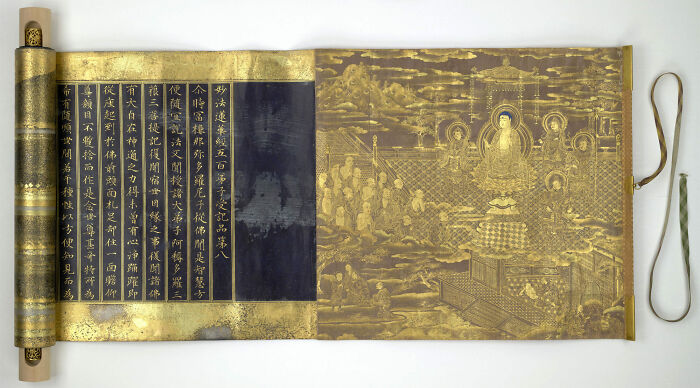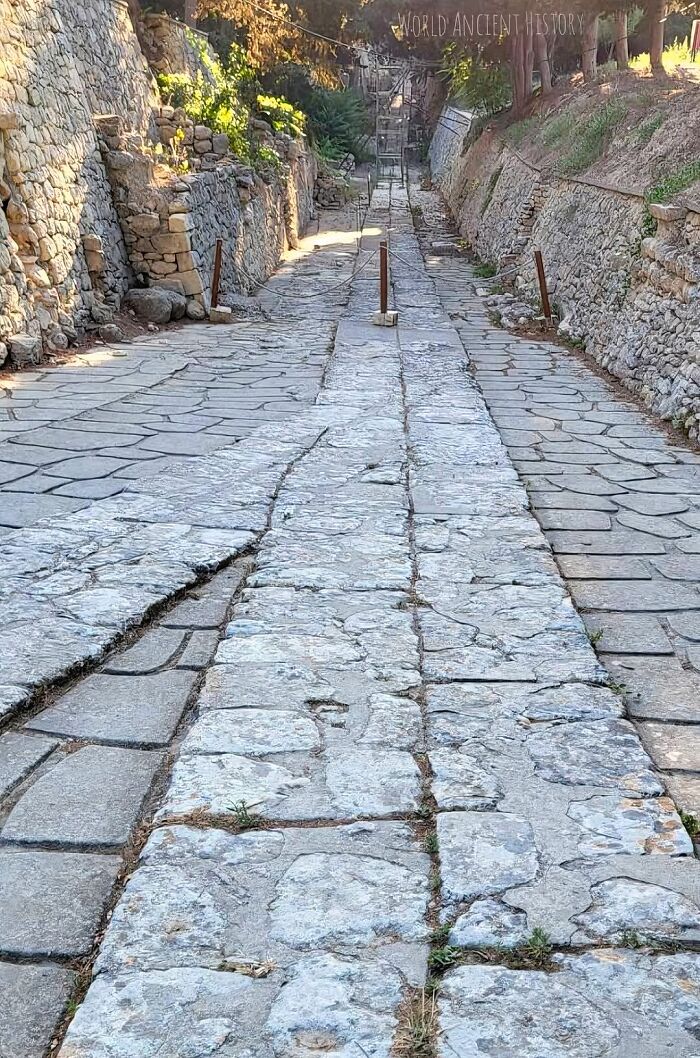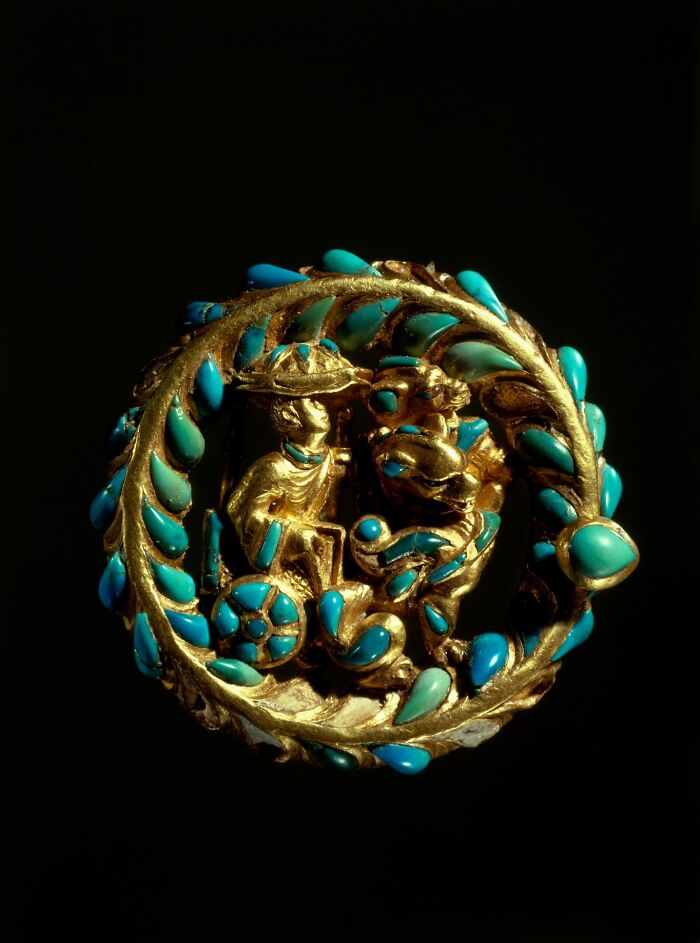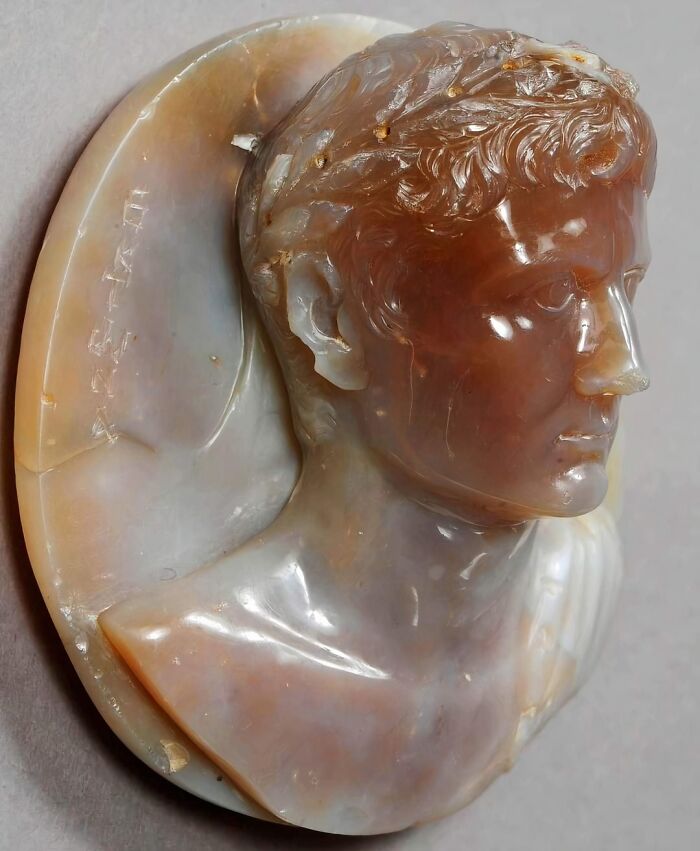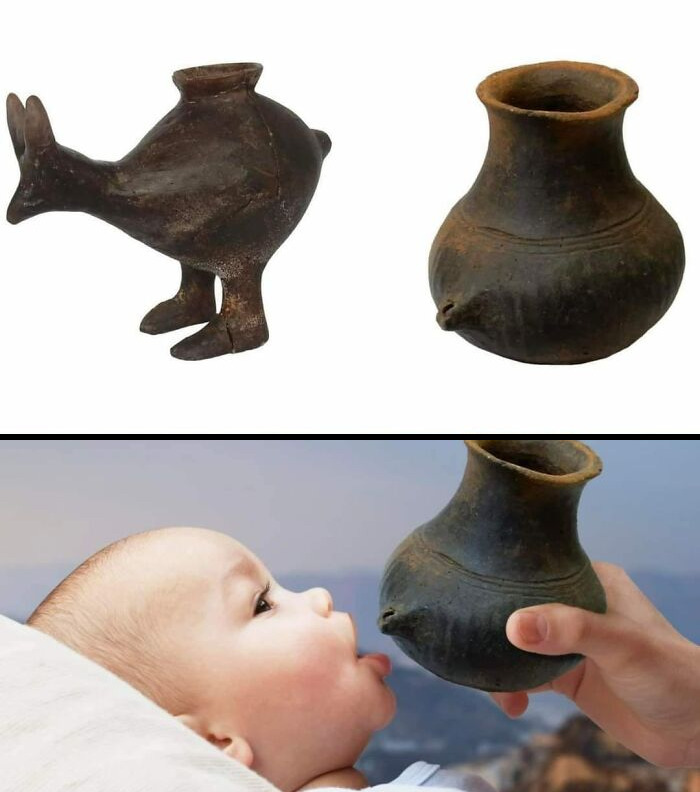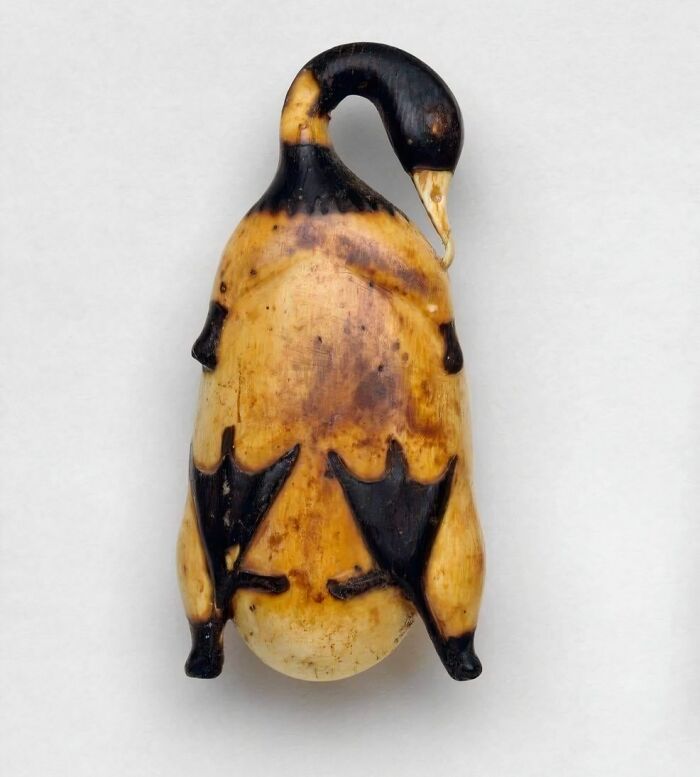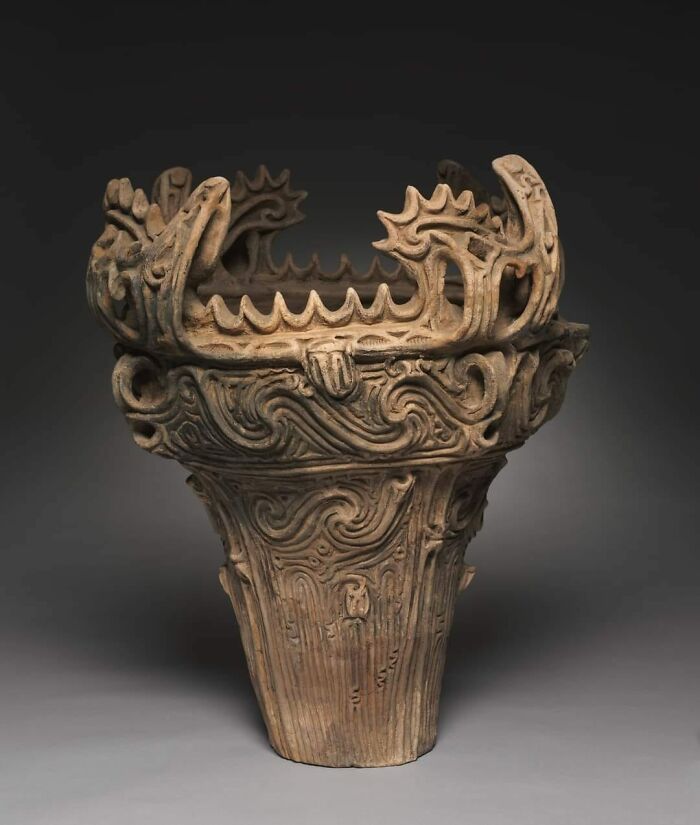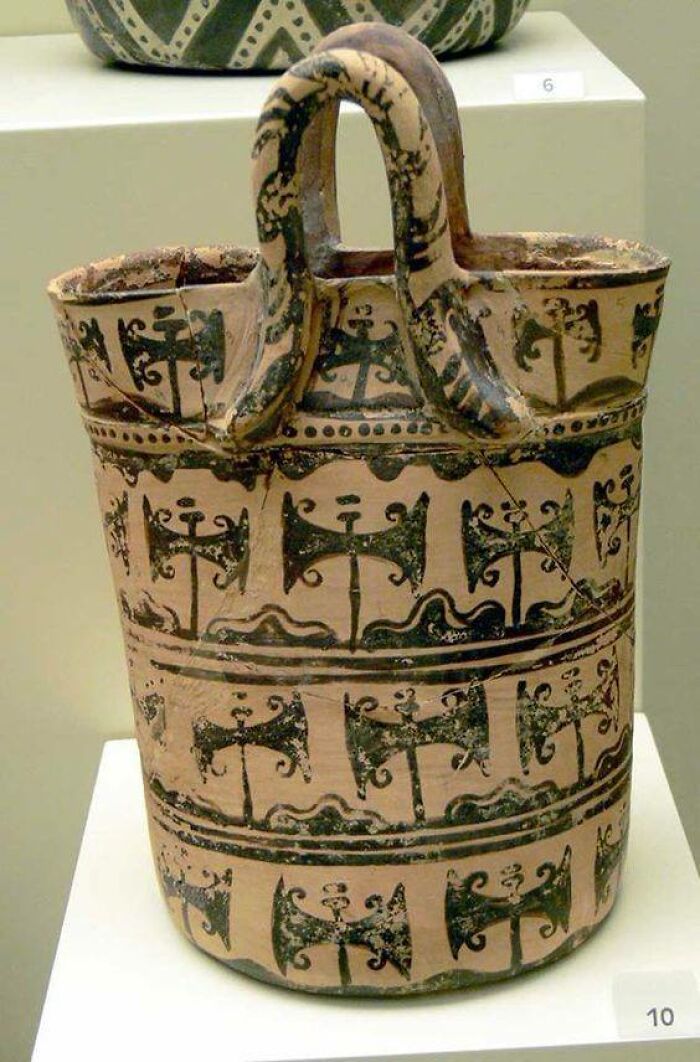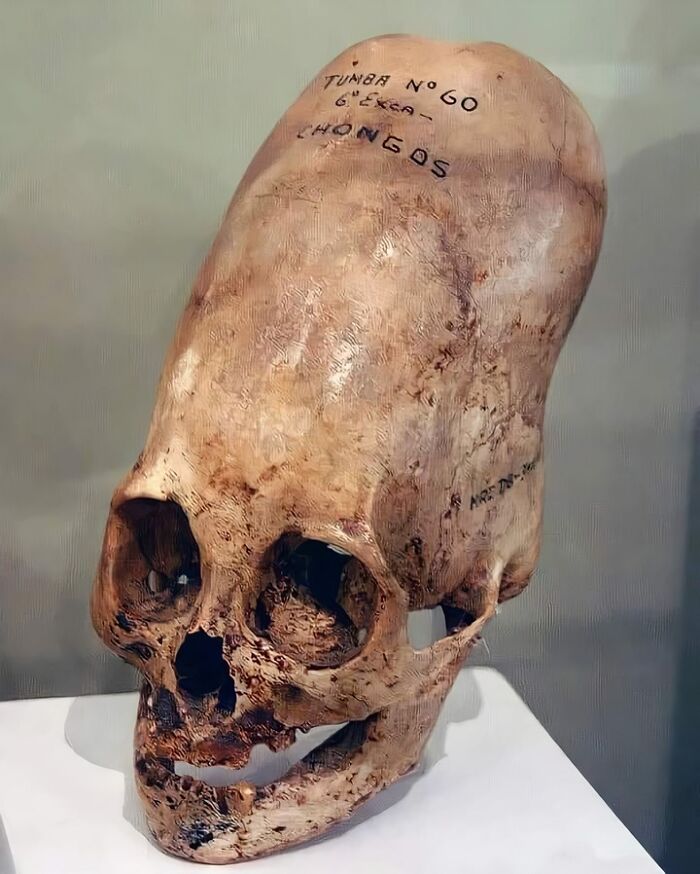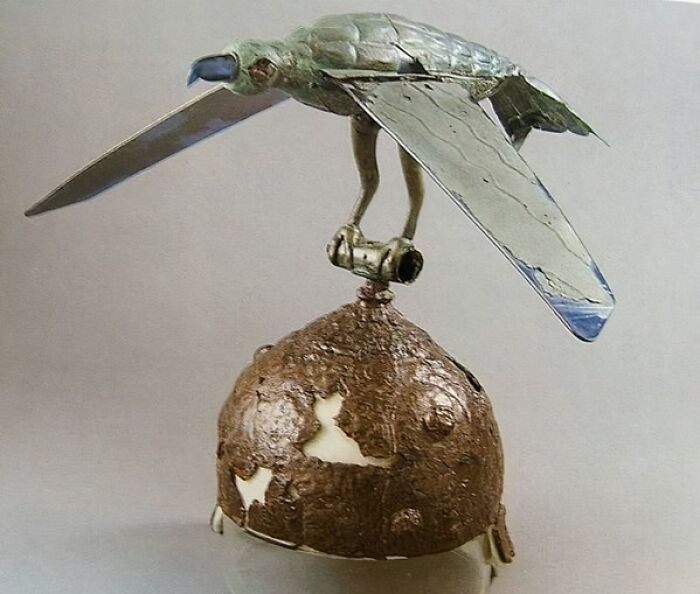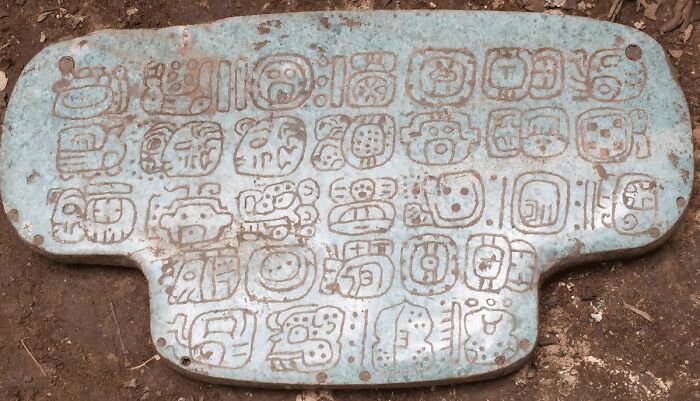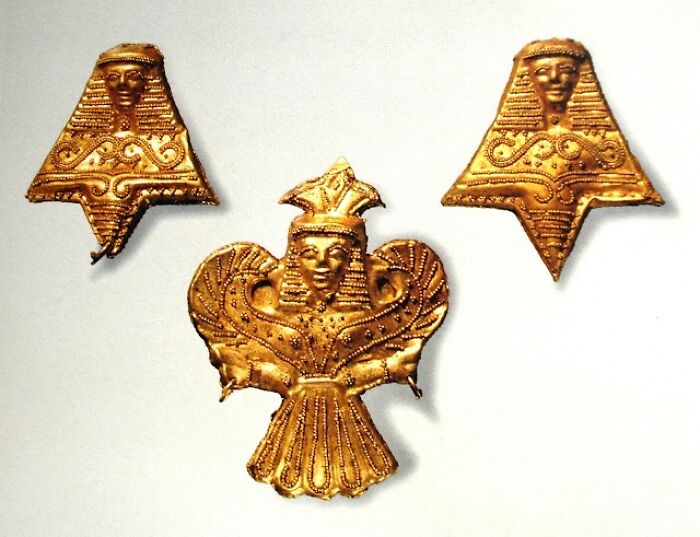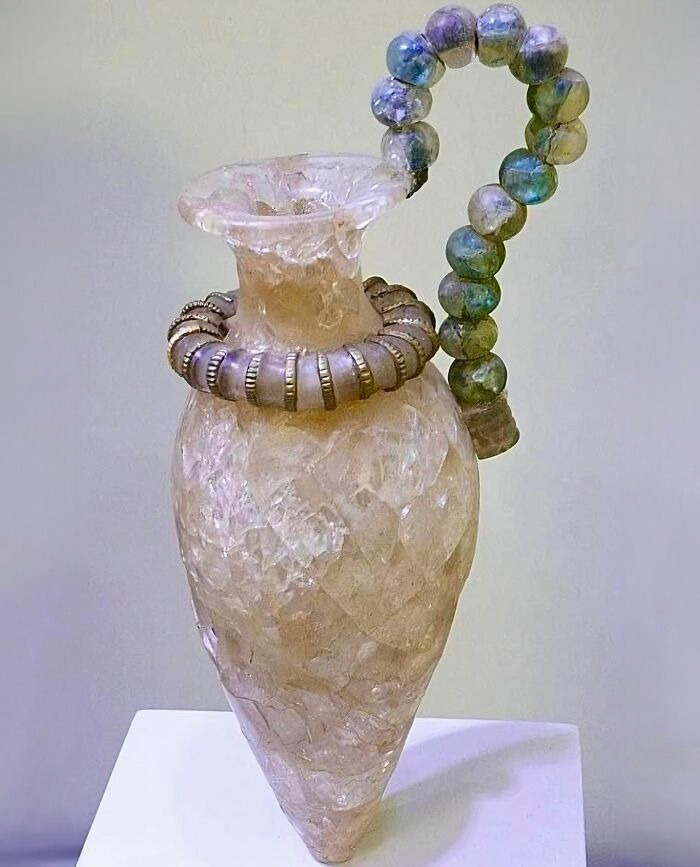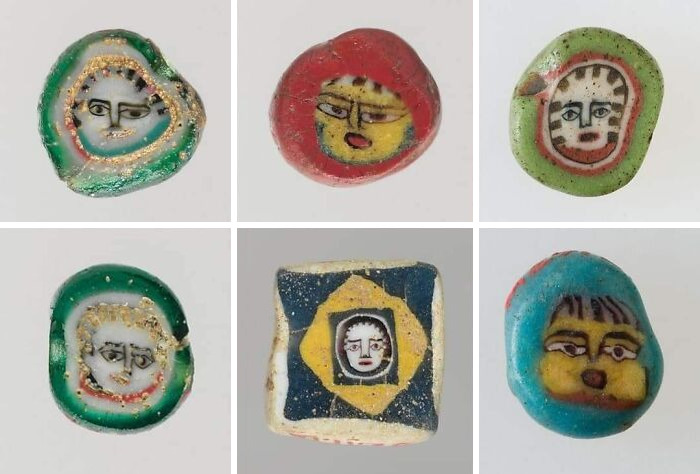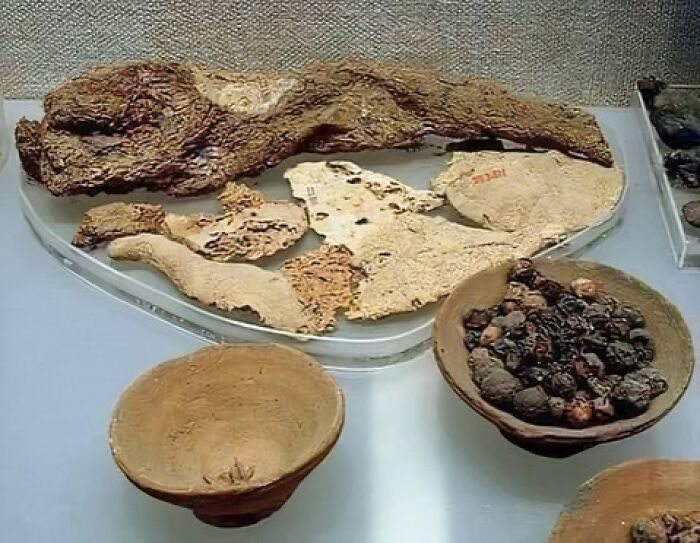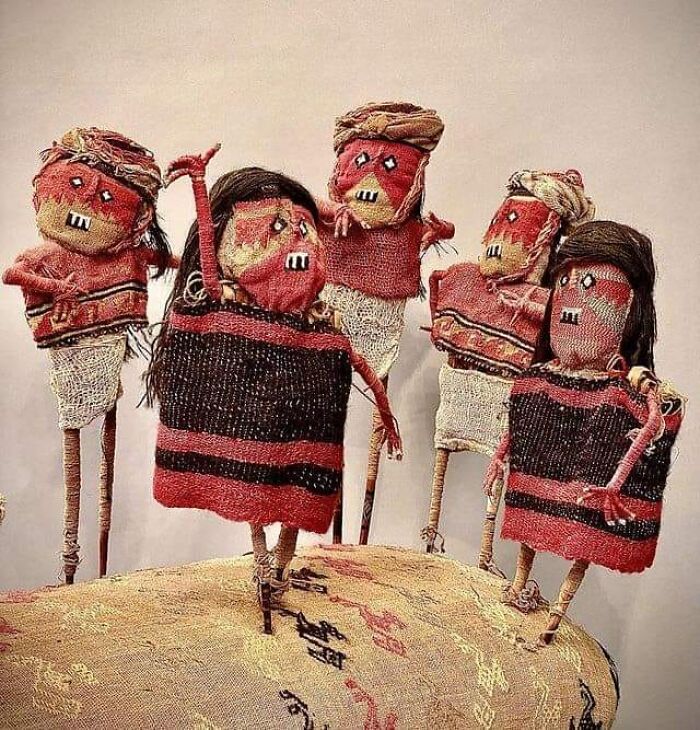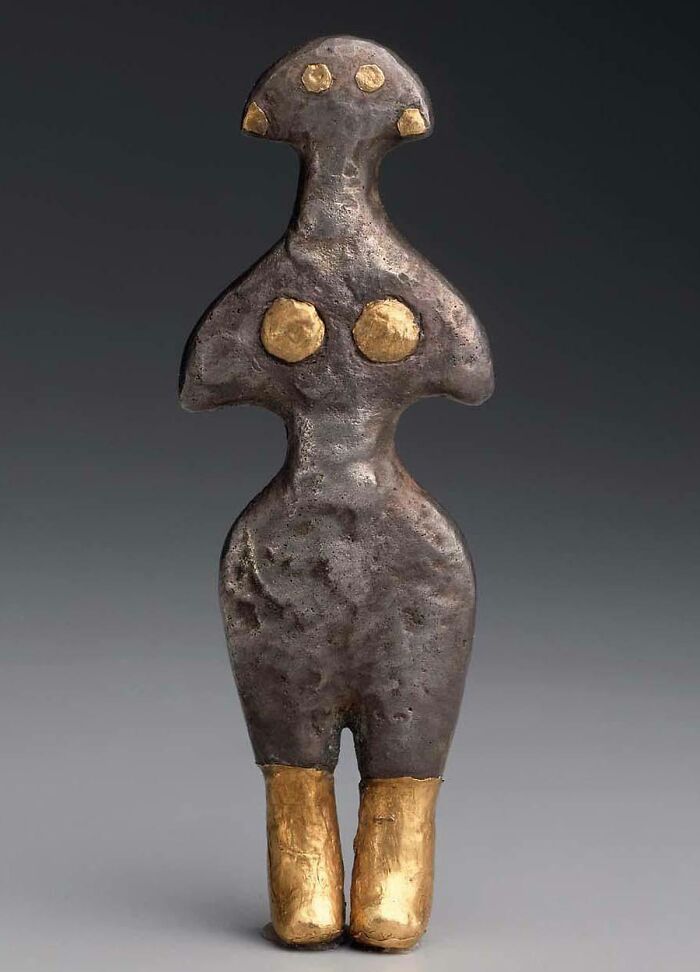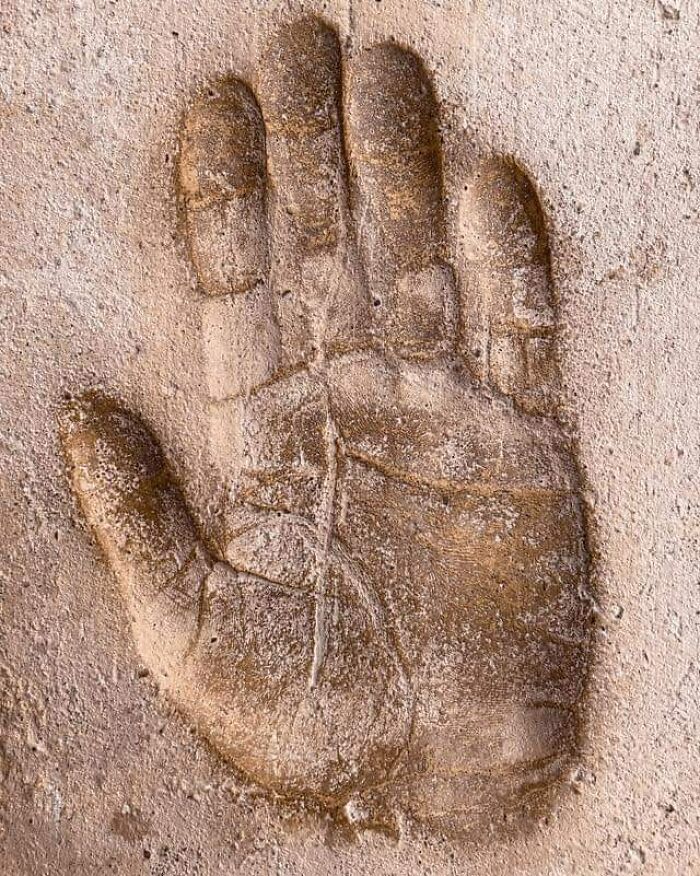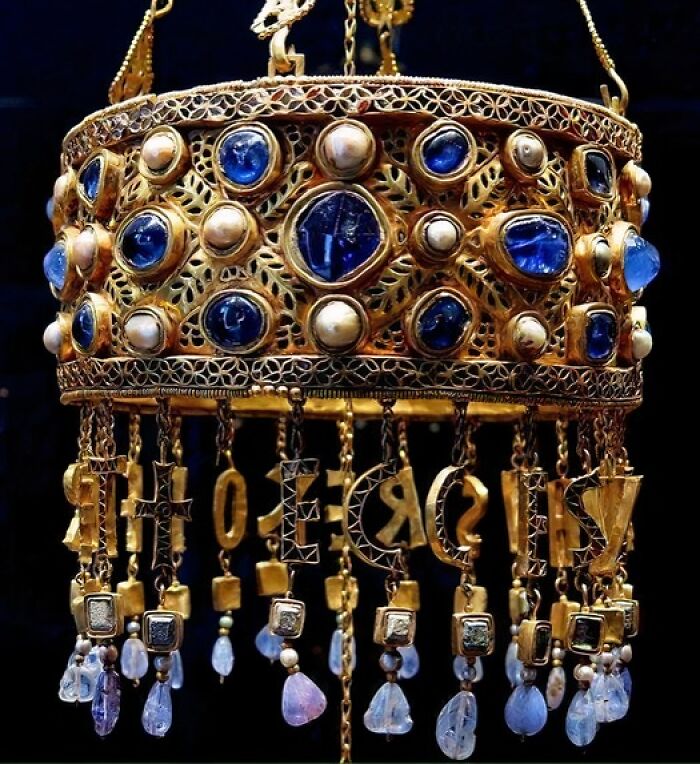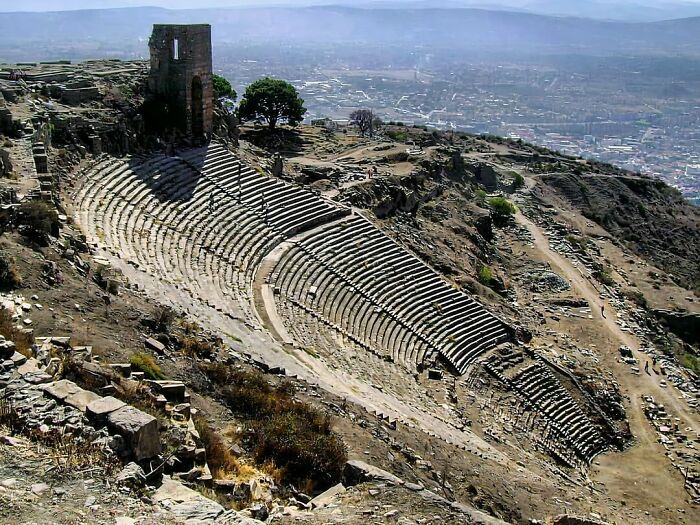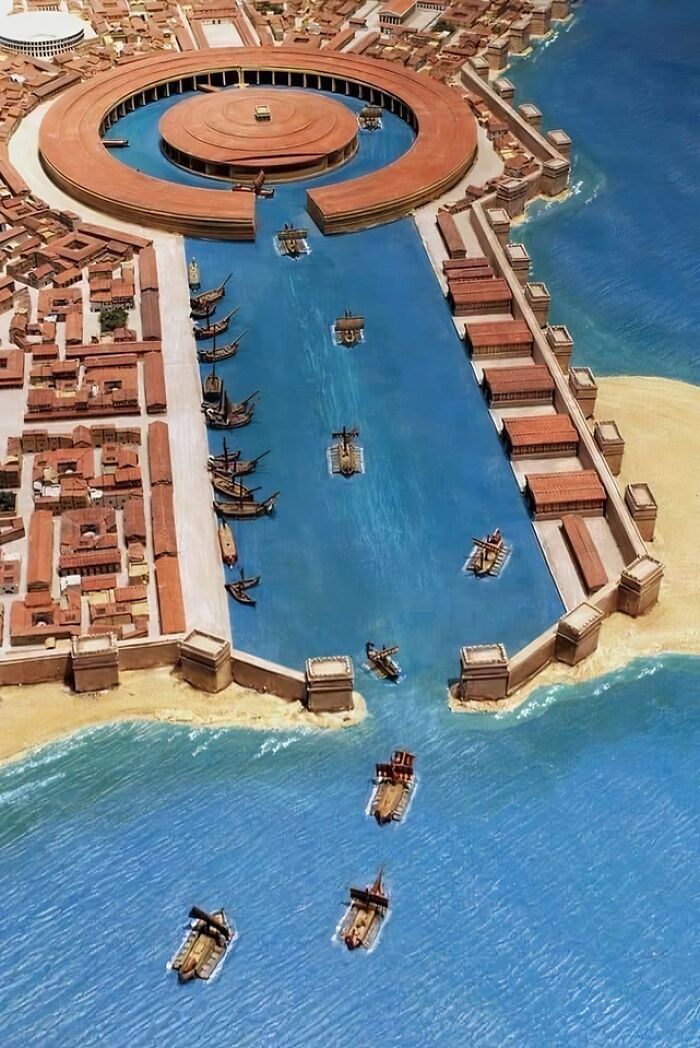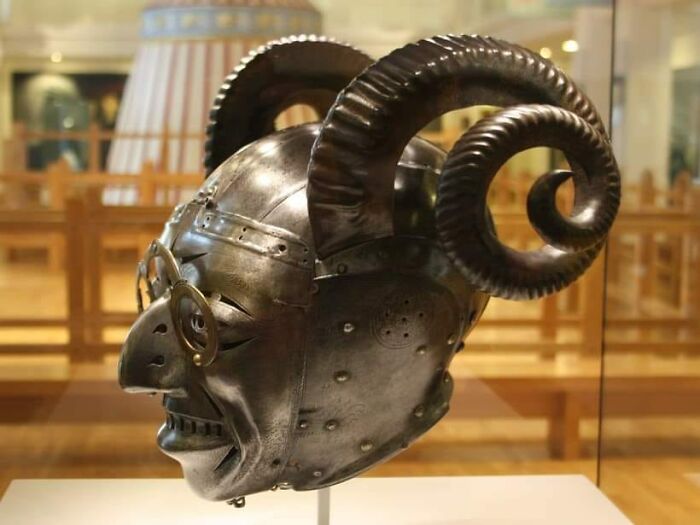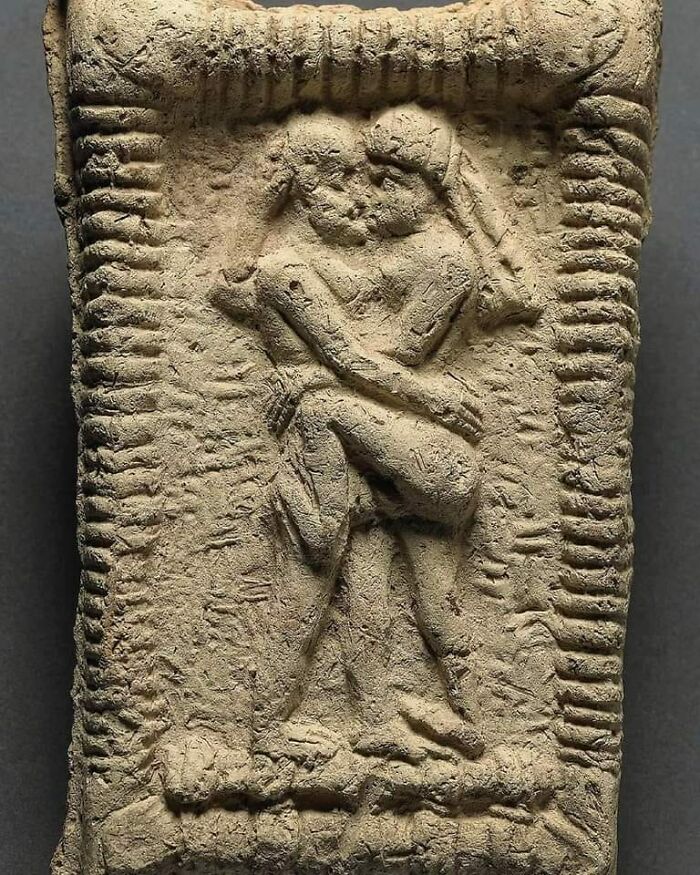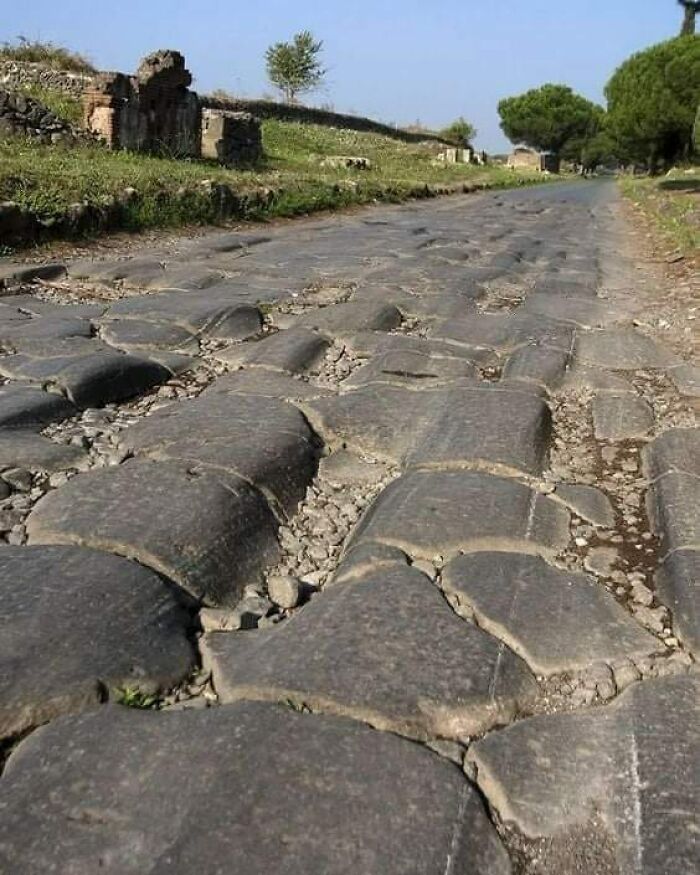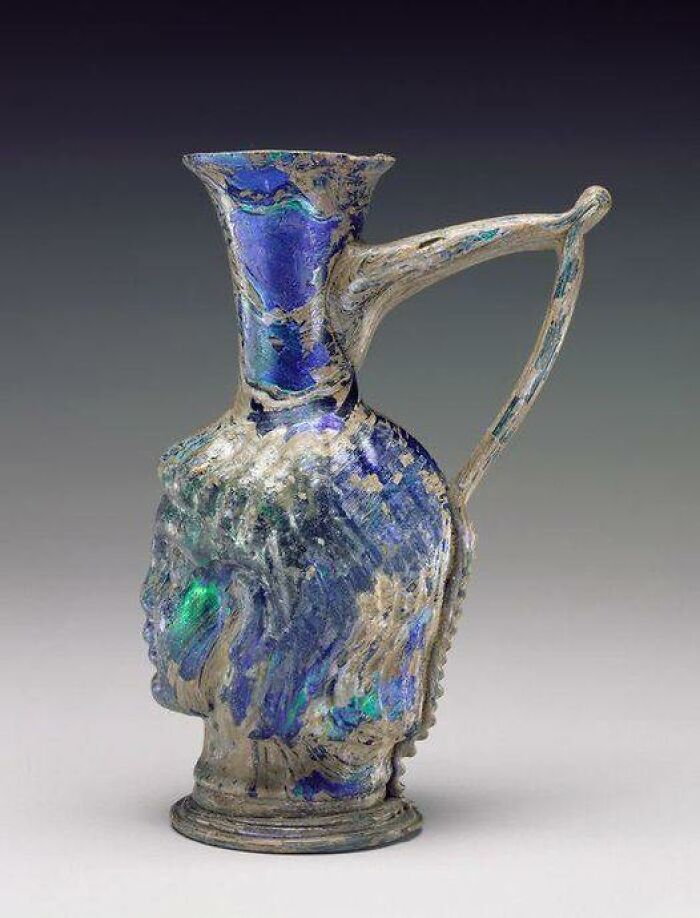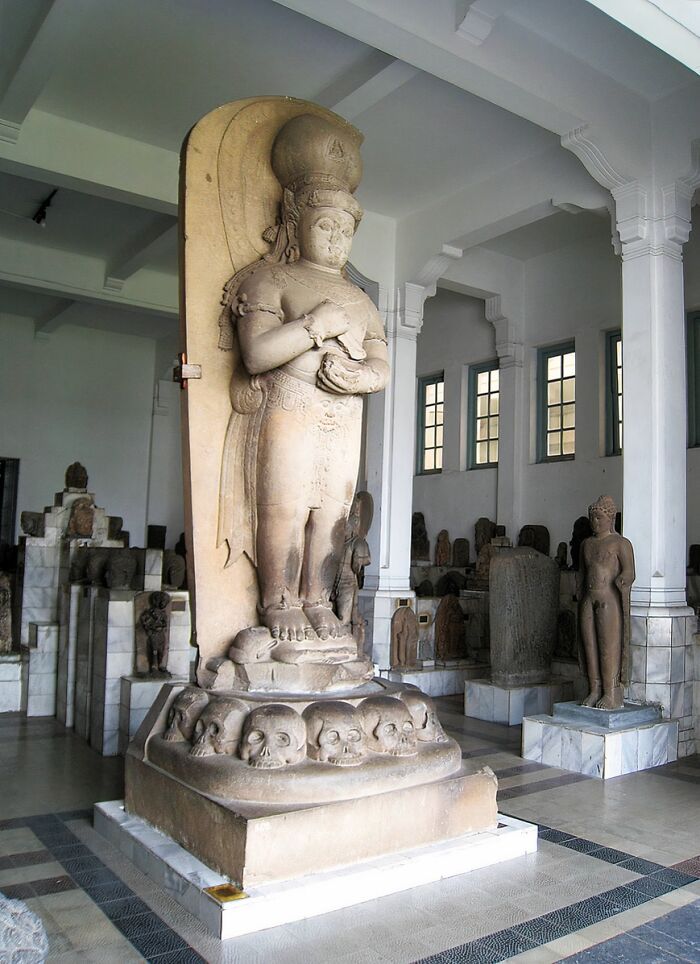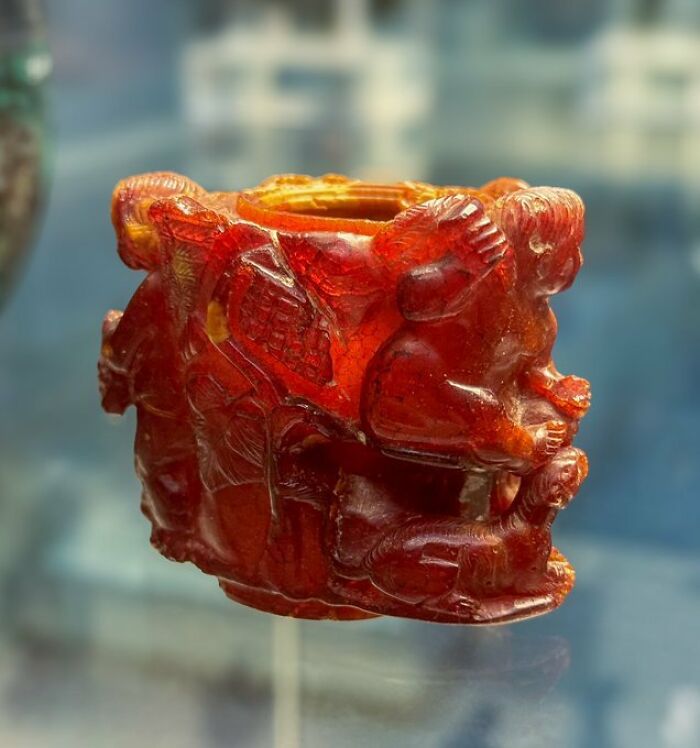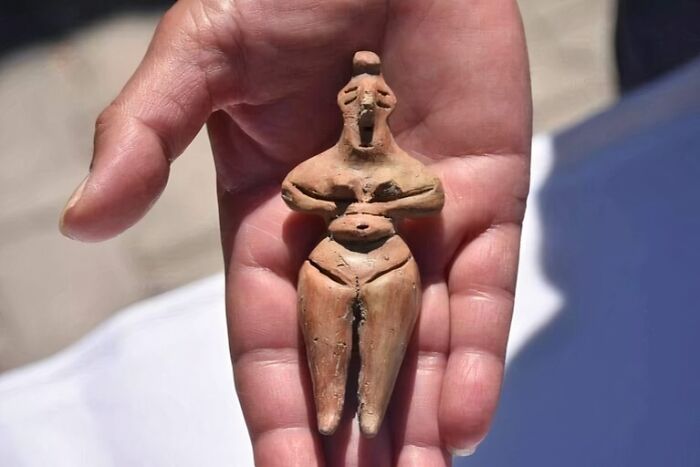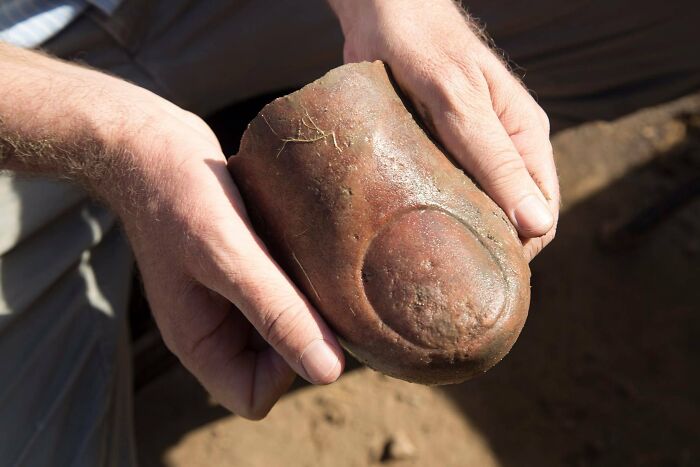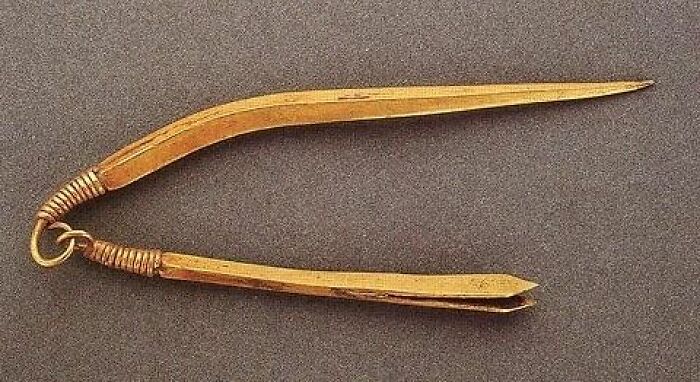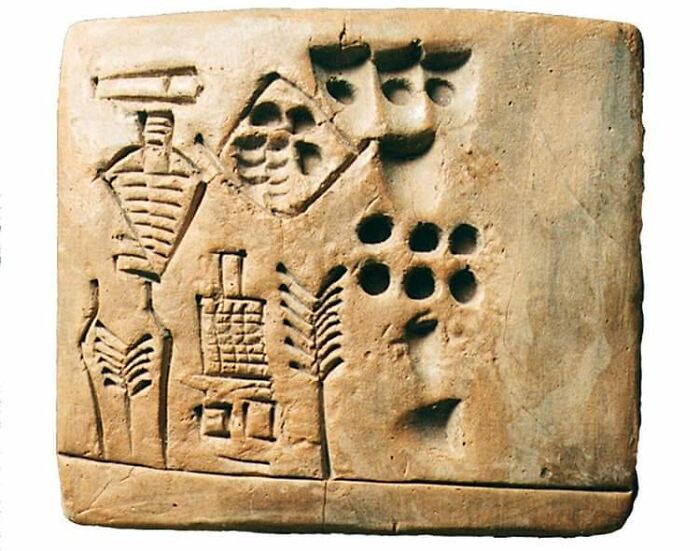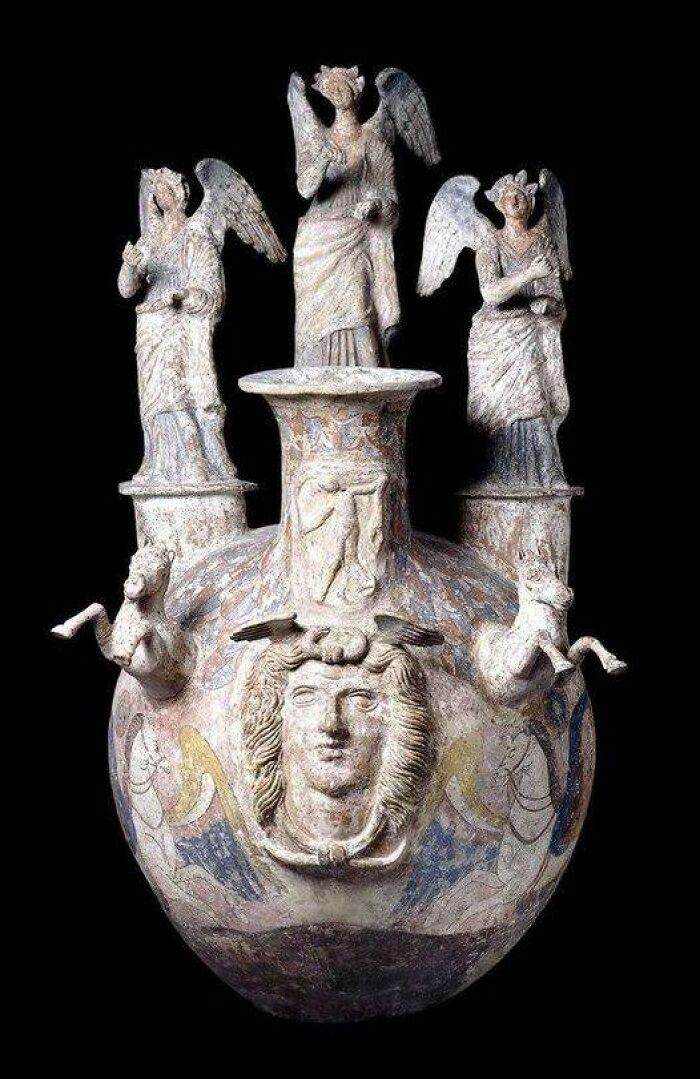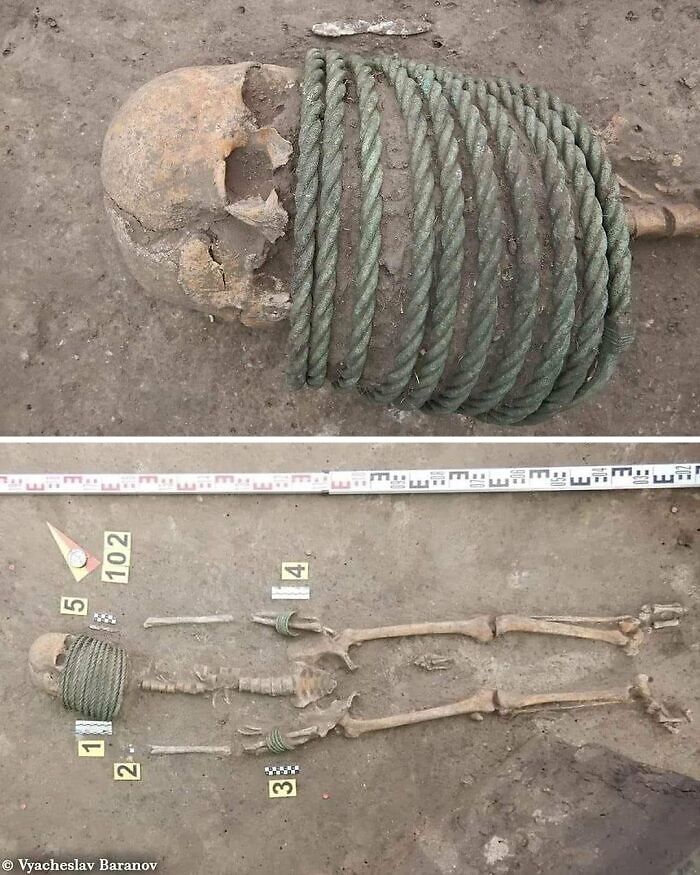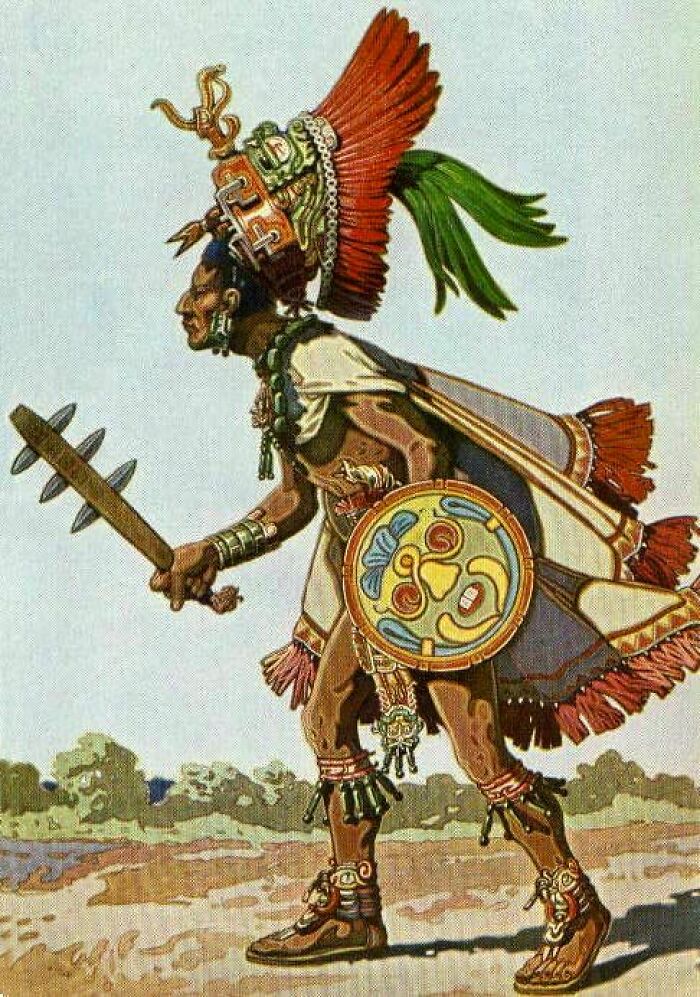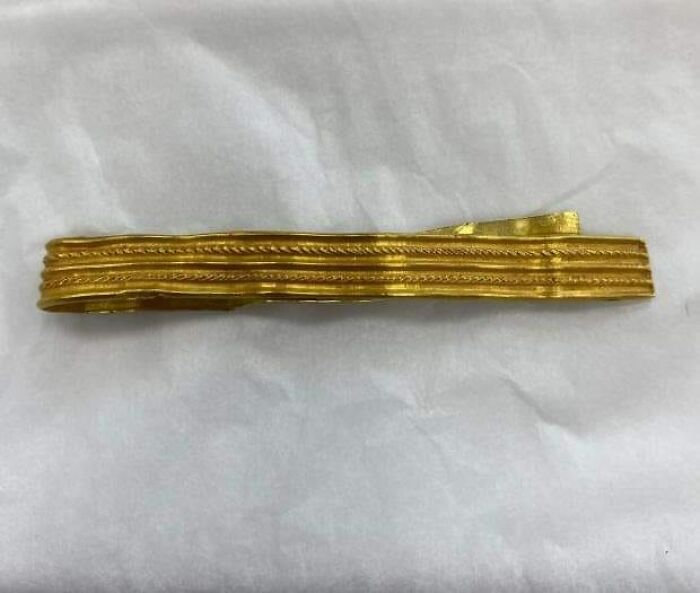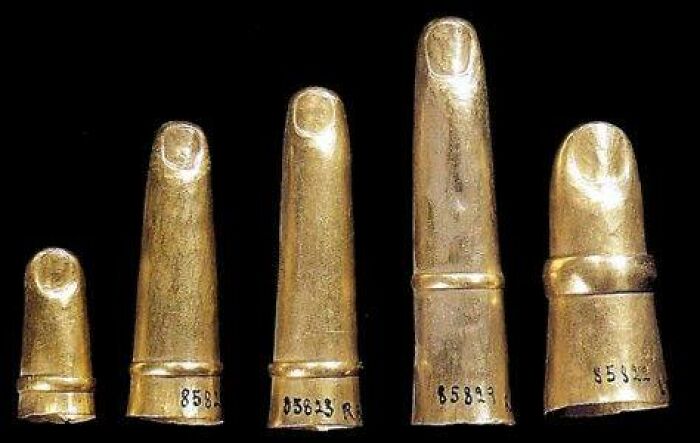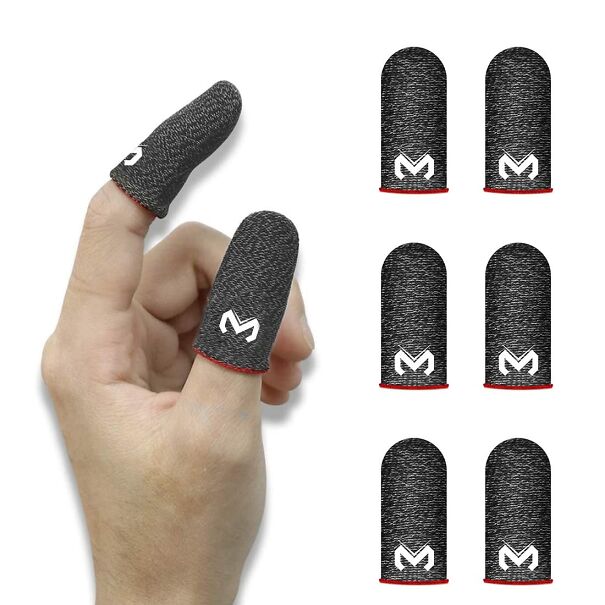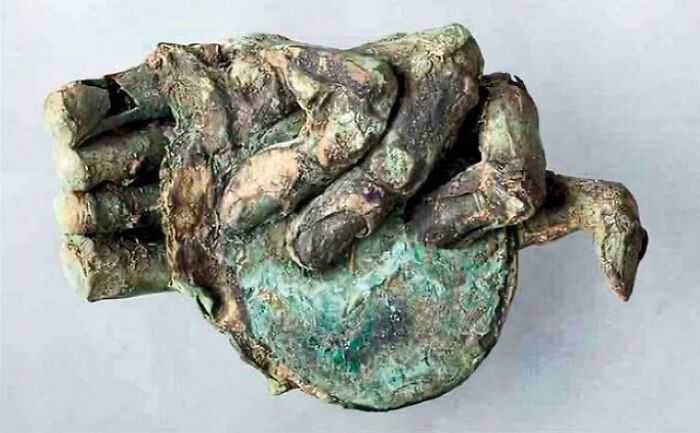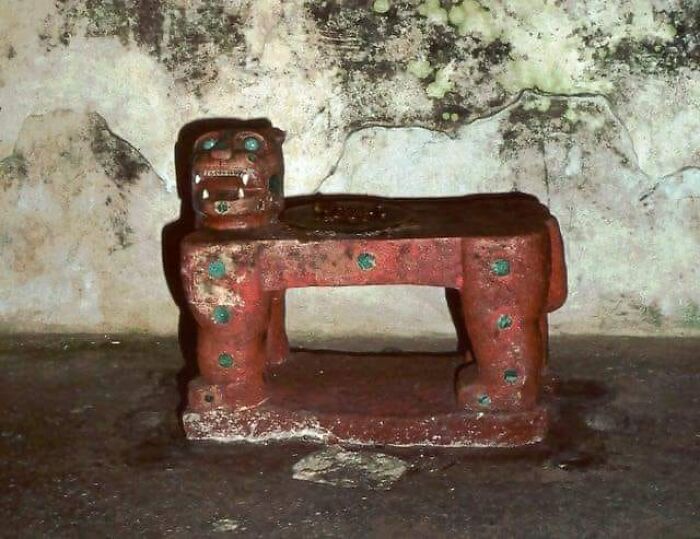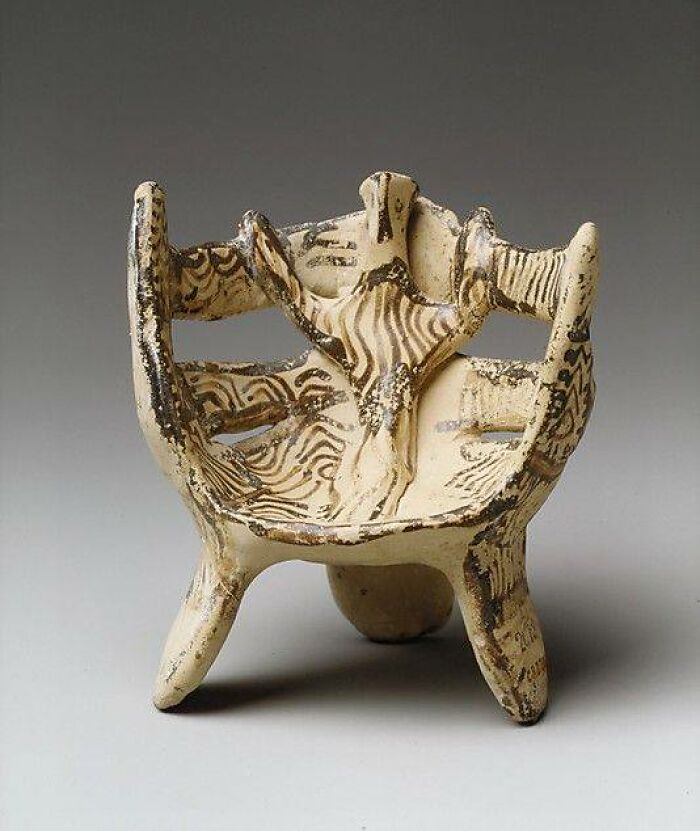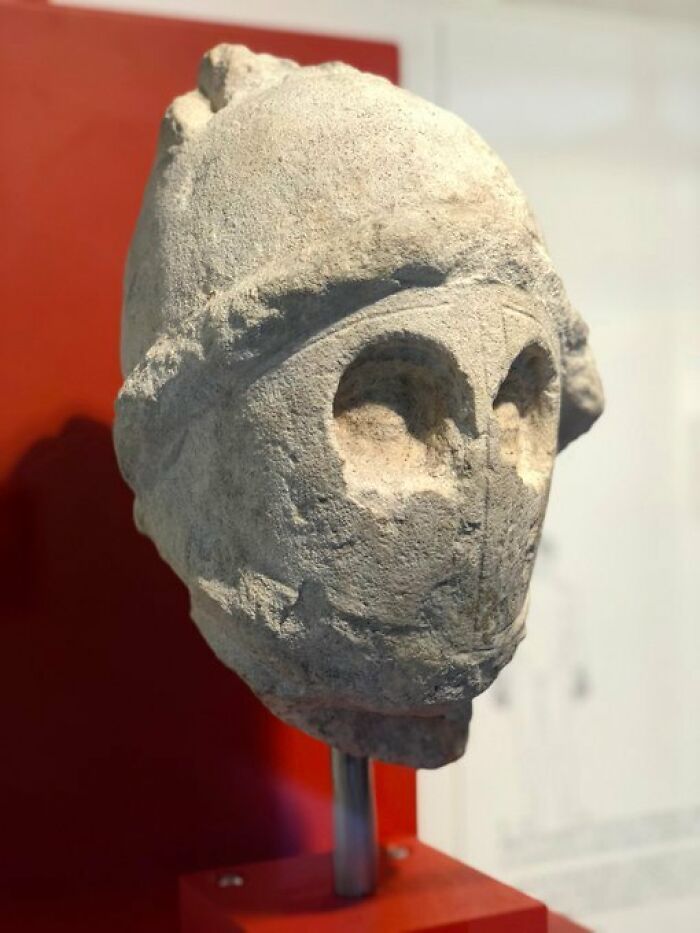Historical artifacts serve as tangible connections to the past, helping us understand and preserve the memory of civilizations. These objects can tell us stories about how people lived, what they valued, and how societies evolved over time.
The good thing is that you don't even need to go to museums to enjoy this anthropological journey.
Thanks to the Facebook group 'Ancient Marvels Of Mankind,' you can do it from your device! Members of this online community are constantly sharing pictures of the best finds from across the globe.
This post may include affiliate links.
This Tiny Boxwood Peapod (10 Cm) Was Carved In C. 1500 By A North German Artist. It Opens To Reveal Little Peas, And Then Those Peas Open To Reveal Ten Little Carved Scenes From Genesis
Built Between 1712 And 1732, The Long Room At Trinity College's Old Library Holds The Collection's 200,000 Oldest Books
Archaeologists excavate areas in which ancient cultures lived and use the artifacts found there to learn about the past because many ancient cultures did not have a written language or did not actively record their history, so these finds sometimes provide the only clues about a particular group or site.
For example, artifacts have provided essential information about life in ancient Egypt. There, people believed in an afterlife and buried the dead with things they would need after they left their bodies behind.
As a result, the tombs of ancient Egypt provide a wealth of artifacts that give insight into the culture.
Remains Of The Ancient Roman City Under The Modern Road In Verona, Close To Porta Leoni, Italy
An Ancient Mesolithic Amber Bear, From About 10,000 Years Ago, Washed Up On The Coast Of Fano In Denmark
That's lovely, I'm assuming it must have had even more detail before the sea got hold of it
The Oldest Known Mirror In The World Was Found In Anatolia, Turkey. Made Of Obsidian, (Volcanic Glass) It Has A Convex Surface And A Remarkably Good Optical Quality
Approx 8000 years old. The description in the title is a general onez applied to all mirrors found in the area from this time period.
The tomb of King Tut is perhaps the most famous. In 1922, British archaeologist Howard Carter came upon the tomb of the Egyptian Pharaoh Tutankhamun, more commonly known as King Tut.
His tomb had been undisturbed since he was buried around 1323 B.C.E. Murals on the wall of the tomb told of King Tut’s funeral and journey to the afterworld. The tomb also included more than 5,000 artifacts, including perfumes and oils, jewelry, statues, and toys from Tut’s childhood.
Carter led a team of archaeologists in cataloging the items from King Tut’s tomb. This took them over a decade, but the artifacts continue to help historians better understand life in Egypt.
A Pair Of Victorian Reverse Painted Crystal Intaglio Earrings, 1870
Faience Beadnet Dress. Egyptian, Old Kingdom, Dynasty 4, Reign Of Khufu. 2551–2528 B.c
See-through was all the rage in ancient Egypt, as lots of paintings show. Egyptians had a very different approach to everything concering the human body, but bead dresses like this are explicitely mentioned as seductive in texts. And yes, they were worn without anything under it. A royal poem from the 18th dynasty actually starts "Take some young women, and give them nets of beads instead of clothes, then let us make a (pleasure) cruise on the beautiful nile...". As sexuality was seen as a pleasure as well as sacred, even godesses were sometimes depicted in outfits like this.
Neolithic Pig-Shaped Pot, C. 6.000 Years Old. Collection: Jiangsu Provincial Museum, Nanjing, Pottery And Porcelain Gallery
A fat pig was believed to be a symbol of happiness and prosperity. A very happy, chubby pig indeed.
Even though specialists have a good grasp of what most historical objects were created for, every now and then they unearth a few exceptions.
Take the neolithic stone balls for example. They were found predominantly in Scotland and date back to the later Neolithic period (circa BC 3,200-2,500).
So far, more than 425 of these balls have been discovered. They are generally the size of a cricket ball and made from a wide variety of stones. Their surfaces are sculpted, sometimes into raised circular discs and sometimes with deep incisions defining knobs and lobes in high relief. Decoration takes the form of spirals or concentric shapes, echoing those found in pottery and monumental stones of the era.
One Of The Most Fascinating Aspects Of Timgad Is The Visible Tracks Left By Roman Chariots. These Grooves, Worn Into The Stone Streets Over Centuries Of Use, Provide Tangible Evidence Of The City’s Vibrant Past
Golden Cicada On A Jade Leaf, Ming Dynasty (1368-1644). This Sculpture Was Discovered In A Tomb In 1954. It Is The Top Of A Hairpin, Belonging To A Woman Of High Rank
The 1950s date on the item's discovery makes me immediately think that it came from Dingling; the tomb of Emperor Wanli, Empress Xiaoduanxian, and Empress Dowager Xiaojing, which was ransacked in the Cultural Revolution (and the bodies of the Emperor and at least one Empress were destroyed). However, I can't find what tomb it came from, so it might not be Dingling. Close excavation date though.
The Neanderthal Flute, Discovered In Slovenia, Is The Oldest Known Musical Instrument, Dating Back Approximately 50,000 Years. Crafted From The Bone Of A Cave Bear
The last 2 words brought to mind a book I read once, decades ago: The Clan of the Cave Bear (1980). A novel by Jean M. Auel, set in prehistoric times. theclanoft...734de0.jpg 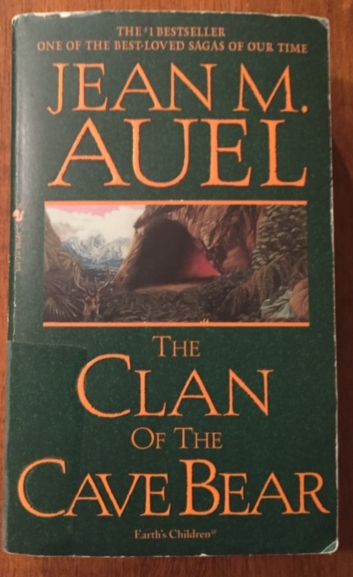
Some have been found in burials, others in settlements, and they are rarely, if ever, identical. Most are also found alone, so don’t seem to have been part of a set. Some appear to have been heavily handled during their lifetime.
The original use of these stone balls has been a source of much debate, right back to their earliest discovery in the 19th century. It doesn't help that many were chance finds or circulated with little provenance in art collections and have rarely showed up in an archaeological context.
Ancient Glazed Tiles From The The Processional Way Of The Isthar Gate Leading To The City Of Babylon, Built By King Nebuchadnezzar In 575 Bc. The Roadway Had 60 Lions On Both Of Its Sides, Each Lion Made Of Forty-Six Molded Bricks In Eleven Rows
Liberated by the Germans, as it's in the Pergamon Museum in Berlin. But I actually have mixed feelings about this one, since I'm not sure it would have been preserved at all if it remained in Iraq. https://en.wikipedia.org/wiki/Ishtar_Gate
Roman Mosaic At The House Of The Tetrastyle In Pula Archaeological Park In Nora, Sardinia, Italy. 2nd C. Ad
A 1st Century Ad, Roman Mosaic With Parrots And Dove Drinking From A Fountain And A Lurking Cat, Found In Santa Maria Capua Vetere, Italy
"Were these stones missiles for deterring predators and pests?" asks Natasha Harlow, an honorary research fellow at the Department of Classics and Archaeology, University of Nottingham. "Weapons of war? Toys? Or perhaps measuring weights, household ornaments, mnemonic devices, and ball bearings to move megaliths or holders for yarn? The answer still escapes us."
Grafarkirkja - The Oldest Turf Church In Iceland
The Medieval Architectural Complex Of Dargavs In The Republic Of North Ossetia Definitely Deserves To Be Better Known
Maybe not better known. Too many historic places have been destroyed by tourists. Once obscure until people stated posting. Now over run and destroyed.
This Miniature Book With The Poem "Wanderstab" - "Travel Staff" - Was Given By Queen Elizabeth Of Romania To Princess Maria Of Edinburgh
Another mysterious example is the bronze age "lock-rings." The period was a time of exceptional craftsmanship, and highly decorative personal ornaments were made from gold sheets and wire.
These small penannular (open) rings date from the late bronze age (circa BC 1,000-800) and are found in Ireland, Britain, and parts of France.
They are frequently unearthed in matching pairs and can be plain or have delicate, geometric engravings.
The Stone Bridge Of Manolis Over Agrafiotis River In Greece. The Bridge Is Almost All Year Underwater And Only Part Of Its Arch May Be Visible, Except The Summer Months When The Water Level Drop
This Exquisite Miniature Chariot, Crafted From Gold With Remarkable Intricacy, Is A Testament To The Artistry Of The Achaemenid Persian Empire
The Roman Ship Named De Meern 1 Was Discovered In Veldhuizen, The Netherlands, In 1997
"Recent interpretations have suggested they could have been nose rings, earrings, or hair ornaments," Harlow explains. But, "none of these explanations is terribly satisfactory, as various elements of their design would make the rings difficult or uncomfortable to wear.
What we lack is context – like the recent discoveries at Boncuklu Tarla, in Turkey, of burials with facial jewelry found close to skulls.
5,000-Year-Old Rock Crystal Dagger From Spain
Intricate Floor Mosaic In The Cathedral Of Santa Maria Del Fiore In Florence, Italy
The Munich Residenz, The Former Royal Palace Of The Bavarian Monarchs, Houses The Magnificent Hall Of Antiquities (Antiquarium), Built In 1568
Not to mention looting — some people dig up artifacts from sites and they end up in private collections before they are able to be excavated and analyzed using formal scientific principles.
Hopefully, we'll grow more aware of the need to protect our history, and we'll see more cool discoveries on 'Ancient Marvels Of Mankind.'
The Village Of Kandovan, An Ancient Troglodyte Site Occupied For At Least 700 Years
15th Century Ceremonial Fan Of Abuna Abraham Debre Tsion Church, Tigray Region, Ethiopia
A Tiny Bone Monkey, Discovered In A Child's Grave. 2.2 Cm Tall. China, Erlitou Culture, Around 1600 Bc
Behold This Exquisite Half Of A “Salting Carpet” From The Safavid Period, Circa 1600. Meticulously Crafted With Wool, Silk, And Metal Thread
Collection Of Mycenaean Weaponry. Swords, 16th - 12th C. Bce
The Gold Fish Vessel, Dating Back To The 5th-4th Century Bce, Is A Remarkable Artifact From The Achaemenid Period
Jewelry Of A Scythian Queen, Found In The Chertomlyk Barrow, Near Nikopol, Katerynoslavsk Governorate (At Present Dnipropetrovsk Oblast, Ukraine)
This Wooden Foldable Bed Was Found In Tutankhamun's Tomb In The Valley Of The Kings, In Luxor. It Is Believed To Be The First Of Its Kind
Nestled In The Heart Of Cambodia, The Ko Paen Bamboo Bridgeis A Testament To Human Ingenuity And The Remarkable Properties Of Bamboo
Detailed Image Of The Hairstyle Of A Soldier From The Famous Terracotta Statue Army Of The First Emperor Of China
Not only they are detailed, each statue is unique. They all look similar from afar. Upon a closer inspection, each one of has a different face with a different body pose.
Mummified Hand Of Yuya, Grandfather Of Akhenaten And Great-Grandfather Of Tutankhamun. This Is An Outstanding Example Of The Skills Of The Embalmer In Ancient Egypt, The Mummy Belonging To The 18th Dynasty Has Been Brilliantly Preserved
Apart from being all shrivelled and dry, yeah, wow, that really is some amazing embalming! Most ‘human’ looking hand from a mummy I’ve personally seen.
The Paracas Candelabra Is A Well-Known Prehistoric Geoglyph Found On The Northern Face Of The Paracas Peninsula In Pisco Bay In Peru
Persepolis Iran, Was Founded By Darius I Circa 518 Bc As The Cerymonial Capital
A Copy Of The Lotus Sutra In A Lavishly Decorated Scroll From Japan, C.1636. Courtesy British Library Board
About The Lotus Sutra for this interested: The Lotus Sutra is regarded as the single most important text of Mahayana Buddhism. It crystallizes the entire system of Indian Buddhist philosophy as created by Shakyamuni. The unique teaching of the Lotus Sutra and its ultimate goal—indeed of Buddhism as a whole—is to enlighten all people; to relieve them of their suffering and enable them to experience genuine happiness, thereby establishing a society that values peace and the dignity of life.
More Than 3500 Year Old Minoan Road, The Oldest Road In Europe
This Remarkable Gold Buckle, Adorned With Turquoise Inlays, Offers A Captivating Glimpse Into The Rich Cultural Fusion Of Ancient Bactria
Roman Cameo Of Caesar Augustus Carved In Chalcedony Stone. It Used To Be Decorated With A Golden Laurel Wreath. About (5cm) Early 1st Century Ad
Late Bronze Age Baby Bottles From Austria, Dated To Around 1200-800 Bc
The Bacino Di San Marco, Which Is Decorated In Piazza San Marco With The Cathedral And The Ducal Palace
The Xerxes Cuneiform Van, Also Known As The Xerxes Inscription, Is A Significant Artifact From The Reign Of Xerxes I, Who Ruled The Achaemenid Empire From 486 To 465 Bce
Miniature Ancient Egyptian Duck Cosmetic Vessel. New Kingdom, 18th Dynasty, Amarna Period, 1353-1327 Bc
This kind of stuff is why I always wanted to be an Egyptologist. The craftsmanship, the detail, how well it's been preserved - absolutely amazing!
Circa 2500 Bc, A Fire-Flame Cooking Vessel (Ka'en Doki) From Ancient Japan
Minoan Clay "Bag" With Labrys Symbols From Psira, Eastern Crete. Post Palatial Period, 1450-1200 B.c
Would this have been used as a vase or something? Any knowledgeable Pandas know?
The Peruvian Archaeologist Discovered More Than 300 Mysterious Skulls Believed To Be At Least 3000 Years Old Antiquity. The Volume Of These Skulls Is About 25% Bigger Than Of The Average Human Skull And They May Weigh Up To 60% More
Ciumesti Helmet Is An Iron Age Celtic Helmet Adorned With A Raven Totem
A Large T-Shaped Pendant Was Discovered At The Maya Archaeological Site Of Nim Li Punit In Southern Belize. What Makes The Jade Pendant Remarkable Is The Fact That It Is Inscribed With A Historical Text Consisting Of 30 Hieroglyphs
Gold Necklace Pendants With Images Of A Siren And Daemonic Bees. 2nd Half Of The 7th C. Bc. (Nationalmuseet, Copenhagen)
Definitely. Less people whining because someone mildly annoyed them, more like this, animals, fun stuff, positive stuff.
Load More Replies...We see these and wonder why they can't make a refrigerator last 10 years with our modern technology.
How do they date the carved items? I know that they can date the stone, but how do they know when it was crafted?
For archeological finds, they are typically dated from other items at the site that are easier to date. Pottery sherds are usually good for this because they can be reliably dated by several means - radio isotope testing on the glazes and paints, style of decoration, and so-on. Scraps of cloth, pieces of bone, even ash at the site can be dated with radio isotope testing. This may not give an accurate date of the carved piece itself but it does give a cut-off date. If the other finds date to circa 1500 then the carving has to be from that date or earlier. Then there are clues in things such as the tools used to carve it, often revealed under magnification. The tiny scratches and grooves will contain traces of the cutting tool. Is it stone? Copper? Bronze? Iron? All these materials had known periods of use, the harder materials superseding the softer ones. Then there's the real lucky find: pieces from a tomb or grave that can be dated by inscriptions, such as the Great pyramids.
Load More Replies...But I thought we were knuckle dragging hunter gatherer troglodytes busy chasing our next meal. Right.
Truly amazing, although somehow I think I would enjoy it more if there was more dating on these.
It amazing how these are so old and in such great condition! Also the ones who know the artist is crazy to me!!
Definitely. Less people whining because someone mildly annoyed them, more like this, animals, fun stuff, positive stuff.
Load More Replies...We see these and wonder why they can't make a refrigerator last 10 years with our modern technology.
How do they date the carved items? I know that they can date the stone, but how do they know when it was crafted?
For archeological finds, they are typically dated from other items at the site that are easier to date. Pottery sherds are usually good for this because they can be reliably dated by several means - radio isotope testing on the glazes and paints, style of decoration, and so-on. Scraps of cloth, pieces of bone, even ash at the site can be dated with radio isotope testing. This may not give an accurate date of the carved piece itself but it does give a cut-off date. If the other finds date to circa 1500 then the carving has to be from that date or earlier. Then there are clues in things such as the tools used to carve it, often revealed under magnification. The tiny scratches and grooves will contain traces of the cutting tool. Is it stone? Copper? Bronze? Iron? All these materials had known periods of use, the harder materials superseding the softer ones. Then there's the real lucky find: pieces from a tomb or grave that can be dated by inscriptions, such as the Great pyramids.
Load More Replies...But I thought we were knuckle dragging hunter gatherer troglodytes busy chasing our next meal. Right.
Truly amazing, although somehow I think I would enjoy it more if there was more dating on these.
It amazing how these are so old and in such great condition! Also the ones who know the artist is crazy to me!!

 Dark Mode
Dark Mode  No fees, cancel anytime
No fees, cancel anytime 




